|
The economy shrank by -4.8% in the first quarter of 2020, according to the advance numbers released by the Bureau of Economic Analysis on April 29, 2020. On Fox News, the major headline was a stock market surge on a potential coronavirus vaccine from Gilead. CNN had nothing about the economy on the homepage, when the report was first released. The New York Times led with the story. Over the next few months, despite stark warnings from economists about the harsh economic times ahead, insurance, annuity, stock and real estate broker-salesmen will continue to assure their clients that their product will rise above and hold value. There will be talk that home prices never go down in this or that area, that the stimulus bill will keep stock and bond prices high or that annuities and insurance products are safe (even when they are highly vulnerable). That’s the way it always goes in recessions. It is never an overnight crash. It took two and a half years from the top to the bottom in the Dot Com Recession. 15 years later, the NASDAQ Composite Index finally crawled back to its March 2000 highs. The Dow Jones Industrial Average dropped from highs above 14,700 to a low of 6547 between October of 2007 and March 9, 2009. Over 10 million homes changed hands in the wake of the Great Recession. As you can see in the chart below, stock and home prices are higher than ever. Debt is astronomical. In fact, the only two times that stock prices have been higher on a 10-year average CAPE ratio was in 1929 and in 2000. Nobel Prize winning economist Robert Shiller has been warning of this for a couple of years now. The Recession will be Announced on July 30, 2020. Today, Federal Reserve Chairman Jerome Powell warned, “Economic activity will likely drop at an unprecedented rate in the second quarter.” Over the next several months, there will be a series of unfortunate events where asset prices (stocks, bonds and home values) will topple and then settle. People will become complacent again, thinking the worst is over, and then something else terrible will happen to sink prices further. (Asset prices are not included in core inflation figures.) At the point when the losses become unbearable, you’ll be tempted to sell low. Many people did this at the Great Recession low in 2009, when the Dow Jones Industrial Average bottomed out at 6547. This is why Buy & Hope and market timing both don’t work. Our easy as a pie chart nest egg strategy with annual rebalancing: 1) earned gains in the last two recessions; 2) outperformed the bull markets in between, and; 3) is a buy low, sell high plan on auto-pilot. A time-proven plan protects your wealth, earns money while you sleep and allows you to sleep at night. In today’s world, you also need to know what is safe in a world where bonds are highly leveraged, losing money, are in danger of being illiquid, and where money market funds had to be bailed out in March 2020 and have redemption gates and liquidity fees. The second quarter GDP is predicted to contract another 12% quarter over quarter and as much as 40% year over year. You will not hear this news, nor that the economy is in a recession, until July 30, 2020. So, in short, be careful getting your economic information from the mainstream media and your wealth strategy from a broker-salesman. Any broker-salesman, who is reliant upon their job to pay their own mortgage, is going to be tempted to keep you invested. At the bottom, you’ll be told, “Who knew that it would be this bad?” and “If you sell now, you’ll be selling low.” You must be the boss of your money. It’s time to step off the Wall Street rollercoaster and into a time-proven plan. What Are Some of the Forthcoming Headlines? High unemployment means consumer credit, which was higher than ever before the coronavirus recession, will become a substantial problem to households and creditors. Banks will have significantly reduced earnings. Homeowners and renters will be at risk of losing their homes. Consumer spending, which has driven the economy and was 69% of GDP, will be limp. Any business dependent upon consumer sales will be impacted. Apple reports earnings tomorrow at 2:00 p.m. PT. That report is predicted to be terrible. Real Estate Real estate losses were severe in the Great Recession. The median sales price of existing homes in the U.S. fell from $221,900 in 2006 to $166,100 in 2011. The losses were nationwide, although there was variance regionally. The implosion in Detroit, Florida, Arizona, New Mexico and Las Vegas was unprecedented in my lifetime. Today real estate prices are higher than ever, at $271,900. Prices are unaffordable in 67% of U.S. cities. 3.5 million homeowners are still severely underwater on their mortgages. Have You Been Told That Real Estate Never Goes Down in Your Area? What factors can reduce prices in your area? Prices are quite often simply a case of supply and demand. If there are too many sellers and not enough buyers, then prices have to come down. When there is high unemployment, the buying pool shrinks. When there is unaffordability, the buying pool shrinks. When mortgages are difficult to obtain due to bad credit or increased tightening of credit standards, demand dries up. When people lose their homes to foreclosure, the supply pool expands. We are likely to see all of those things happen over the next few months, even in areas where people believe they are exempt from the laws of supply and demand. I will discuss this further in my online retreat this weekend, including solutions for homeowners who feel that they are overextended, and would-be home buyers who are worried that home prices are too high. We also discuss nest egg strategies, what’s hot, and how to save thousands of dollars annually in your budget with smarter big-ticket choices. Cutting out café lattes and avocado toast is not going to fix the challenges that lie ahead. Asset Bubbles So, what about stocks and bonds? Stocks are far too expensive, even with a 17% downturn since the highs of February 19, 2019. The bond market had to be bailed out on March 2, 2020. The bailout does not give a blank check to every single company and entity that needs to be rescued. As Federal Reserve Chairman Jerome Powell noted in his press conference today, “We can’t lend to insolvent companies.” We have seen a vigorous debate in Congress about whether or not states should be allowed to declare bankruptcy. That should give you some concern about your municipal bonds. Credit risk and term risk are at issue, as is liquidity. No one is going to want to take a 20-year bond (or longer) off your hands. There is no reward for that risk, particularly as the risk of insolvency increases. Over 50% of corporate bonds have been just above junk-bond status for over a year. Ford was downgraded to junk in September 2019. You can expect further downgrades to start. Many corporations have slashed their dividends. Those people who were relying upon dividends for income are in trouble – not just of having no income, but also of capital loss of their investment and potential illiquidity. As I’ve been saying for years, the higher the dividend the higher the risk. Private placement REITs are particularly toxic. Read D&T’s story of caution in their own words. In short, wisdom is the solution. The time to get that wisdom is now, while everything is still trading nice and high. That is why I am hosting an online emergency retreat this weekend, May 2-4, 2020. We will focus on nest egg strategies to protect your wealth, real estate strategies to protect your wealth, and bond strategies to protect your wealth. We will also talk about the Thrive Budget® and how you can position yourself best to survive one of the worst economic recessions that any of us have seen in our lifetime. If you wait for the headlines, it will be too late to protect yourself. Free Video Conferences I host a free video conference twice a month. If you'd like the log-on information, email [email protected] with VIDEOCON in the subject line. The next videoconference will be April 30, 2020 at 5 pm PT, after Apple announces earnings. Watch the conferences back on my YouTube channel at YouTube.com/NataliePace2. Other Blogs of Interest Apple Reports Terrible Earnings. We Are in a Recession. Unemployment, Rising Stocks. What's Going On? 8 Money Myths, Money Pits, Scams and Conspiracy Theories. 21st Century Solutions for Protecting Your Home, Nest Egg & Job. Wall Street Insiders are Selling Like There is No Tomorrow. Why Are My Bonds Losing Money? Tomorrow is Going to be Another Tough Day. Price Matters. Stock Prices are Still Too High. Should You Ride Things Out? 7 Recession Indicators Corona Virus Update. The Bank Bail-in Plan on Your Dime. NASDAQ is Up 6X. CoronaVirus: Which Companies and Countries Will be Most Impacted. Is Tesla Worth GM and Ford Combined. Artificial Intelligence is on Fire. Is it Time to Buy S'More? Take the Retirement Challenge. 2020 Investor IQ Test. Answers to the 2020 Investor IQ Test. The Cannabis Capital Crunch and Stock Meltdown. Does Your Commute Pollute More Than Planes? Are Health Care Costs Killing Your Budget? 2020 Crystal Ball. The Benefits of Living Green. Featuring H.R.H. The Prince of Wales' Twin Eco Communities. What Love, Time and Charity Have to do with our Commonwealth. Interview with MacArthur Genius Award Winner Kevin Murphy. Unicorns Yesterday. Fairy Tales Today. IPO Losses Top $100 Billion. Counting Blessings on Thanksgiving. Real Estate Prices Decline. Hong Kong Slides into a Recession. China Slows. They Trusted Him. Now He Doesn't Return Phone Calls. Beyond Meat's Shares Dive 67% in 2 Months. Price Matters. Will There be a Santa Rally? It's Up to Apple. Will JP Morgan Implode on Fairy Tales and Unicorns. Harness Your Emotions for Successful Investing. What the Ford Downgrade Means for Main Street. The Dow Dropped Over 1000 Points Do We Talk Ourselves into Recessions? Interview with Nobel Prize Winning Economist Robert J. Shiller. Ford is Downgraded to Junk. From Buried Alive in Bill to Buying Your Own Island. The Manufacturing Recession. An Interview with Liz Ann Sonders. Gold Mining ETFs Have Doubled. The Gold Bull Market Has Begun. The We Work IPO. The Highs and Hangovers of Investing in Cannabis. Recession Proof Your Life. China Takes a Bite Out of Apple Sales. Will the Dow Hit 30,000? A Check Up on the Economy Red Flags in the Boeing 2Q 2019 Earnings Report The Weakening Economy. Think Capture Gains, Not Stop Losses. Buy and Hold Works. Right? Wall Street Secrets Your Broker Isn't Telling You. Unaffordability: The Unspoken Housing Crisis in America. Are You Being Pressured to Buy a Home or Stocks? What's Your Exit Strategy? It's Time To Do Your Annual Rebalancing. Cannabis Crashes. Should You Get High Again? Are You Suffering From Buy High, Sell Low Mentality? Financial Engineering is Not Real Growth. The Zoom IPO. 10 Rally Killers. Fix the Roof While the Sun is Shining. Uber vs. Lyft. Which IPO Will Drive Returns? Boeing Cuts 737 Production by 20%. Earth Gratitude This Earth Day. Real Estate is Back to an All-Time High. The Lyft IPO Hits Wall Street. Should you take a ride? Cannabis Doubles. Did you miss the party? 12 Investing Mistakes Drowning in Debt? Get Solutions. CBD Oil for Sale. The High Cost of Free Advice. Apple's Real Problem in China: Huawei. 2018 is the Worst December Since the Great Depression. Will the Feds Raise Interest Rates? Should They? Learn what you're not being told in the MSM. Why FANG, Banks and Your Value Funds Are in Trouble. Russia Dumps Treasuries and Buys Gold OPEC and Russia Cut Oil Production. Important Disclaimers Please note: Natalie Pace does not act or operate like a broker. She reports on financial news, and is one of the most trusted sources of financial literacy, education and forensic analysis in the world. Natalie Pace educates and informs individual investors to give investors a competitive edge in their personal decision-making. Any publicly traded companies or funds mentioned by Natalie Pace are not intended to be buy or sell recommendations. ALWAYS do your research and consult an experienced, reputable financial professional before buying or selling any security, and consider your long-term goals and strategies. Investors should NOT be all in on any asset class or individual stocks. Your retirement plan should reflect a diversified strategy, which has been designed with the assistance of a financial professional who is familiar with your goals, risk tolerance, tax needs and more. The "trading" portion of your portfolio should be a very small part of your investment strategy, and the amount of money you invest into individual companies should never be greater than your experience, wisdom, knowledge and patience. Information has been obtained from sources believed to be reliable however NataliePace.com does not warrant its completeness or accuracy. Opinions constitute our judgment as of the date of this publication and are subject to change without notice. This material is not intended as an offer or solicitation for the purchase or sale of any financial instrument. Securities, financial instruments or strategies mentioned herein may not be suitable for all investors. Apple reports earnings this Thursday, April 30, 2020 at 2 PM Pacific. It’s expected to be a pretty dismal earnings report. Apple was one of the first retail stores to close down in the U.S. (on March 13, 2020). Since their phones and products are made in China, they were also one of the first to be affected with supply chain disruptions at the Foxconn factory closures. We first reported on this on February 14, 2020, when the Apple share price was still trading at $325/share. On February 17, 2020, Apple warned that they would miss their previous revenue guidance for the quarter ending March 31, 2020. As early as February 27, 2020, there were signs that the worldwide economy was entering a recession. The only question was how deep, long and pronounced it would be… We offered four warnings about the bad advice that was circulating, alongside 6 ways to protect your wealth and income, and realign your budget. I’m highlighting this because if you wait for the headlines, it’s too late to protect your wealth. Since the February 19, 2020 stock market highs, the Dow Jones Industrial Average has lost as much as 35%. There are typically a series of unfortunate events, over a 12-24 month period, during a correction. Plateaus and mini-rallies in between the knife-like drops are common, even when the general trend is down. So, Wall Street is expecting a pretty bad earnings report from Apple on Thursday, after the markets close. On Wednesday morning at 5:30 am PT, there will be bad news as well, when the 1st quarter 2020 earnings report – a contraction – will be announced. Not surprisingly, the Dow Futures today (Sunday) are slightly down. The informed insiders typically start their move before the general announcement. Everyone’s eyes will be on the Apple buyback and dividend announcements. Many companies have announced suspensions of one or both in their earnings calls this quarter. Since Apple has had the most aggressive share repurchase plan on Wall Street by far – at $81.7 billion in 2019 – a cutback or suspension of their buyback plan will not be welcome news. Over the past few years, Apple’s share repurchase plan has helped the entire stock market rise. As Liz Ann Sonders, the chief investment strategies at Charles Schwab Inc., advised us in an interview last August 2019, “How have we had a 10-year bull market? It’s not been hedge funds, pension funds, foundations and endowments or individual investors. Corporations have bought back stock.” Apple has topped the list of corporate buybacks, with the nearest competitors (lots of banks) repurchasing about one-quarter of Apple’s. What Does All of This Mean for You? The world has changed. Once the Stay at Home orders are phased out, there will not be a return to the way things were a few months ago. There is far too much unemployment. Consumer spending can’t return to normal. Many industries, including airlines, oil and gas, hospitality, retail and travel, are also in a crisis. Both sides of the aisle are going to try to politicize the situation. But it’s important for you to know the facts. The economy was very overleveraged before this crisis. There were liquidity issues well before the pandemic, as well. The first behind-the-scenes banking rescue happened last September 2019. Ford bonds were downgraded to junk by Moody’s on September 9, 2019. Nobel Prize winning economist Robert Shiller has been warning that stocks were in a bubble since 2018, as has Alan Greenspan. Warren Buffett said that bonds should come with a warning label in 2018. Over half of corporate bonds have been at the lowest rung, just above junk bond status, for well over a year. Muni bonds were even more leveraged. Prior to the current crisis, insiders knew we were at the late stage of the business cycle, which is Wall Street jargon for, “We are close to a recession.” But that’s not the entire story. As you can see in the chart below, real estate and stock asset bubbles had formed and were more bubblicious than they were before the Great Recession. Consumer debt was also higher than before the Great Recession. Debt was astronomical. Stocks lost more than half in the Great Recession. The real estate contraction was nationwide, with over 10 million homes in distress. There are still 3.5 million homes that are underwater, even now, with home prices near all-time highs. Low Interest Rates Create Asset Bubbles. Leverage has been an area of concern for the past few years. Legacy corporations were borrowing from the bond market to buy back their own stock and pay dividends (benefitting the insiders), while allowing their credit rating to fall to the lowest rung of investment grade. There was really no incentive to keep a higher credit score when even the lowest investment rating was still borrowing at 5%. Unicorns like Uber, Lyft, Snap Inc. and The We Co. swam in easy capital from the venture capital pool to fund their growth, even with massive losses. These two groups were flying dangerously close to the trees. The bond market continued to fund high leverage because their investors wanted some yield. (Never reach for yield.) The venture capital market began asking for a “clear path to profitability.” Unicorns were congregated in small-cap growth, while the debt-laden legacy companies took up shop in the large-cap value funds. We Are in a Recession We are in a recession. That will not be officially declared until July 29, 2020, when the advance report of 2nd quarter 2020 GDP is announced. It will be a severe contraction – up to 40% year over year and -12% lower than the 1st quarter 2020, according to Fitch Ratings and the Congressional Budget Office. The economy is predicted to contract -5.6% for the full year 2020. What is Your Best Strategy? It’s never market timing. Selling everything you’ve got is not a good strategy, particularly in today’s world when bonds and money market funds are vulnerable to capital loss. However, overweighting safe and acting your age is. If you have wealth to protect, then you must know what you own now. Do not rely upon your financial advisor to do this for you, particularly if s/he has advised you to ride it out, or buy on the bounce, or if you lost more than 25% in the Great Recession. Call our offices at 310-430-2397 for an unbiased 2nd opinion. Once you know what you own, and how much at risk or how safe your assets are, you can determine how best to proceed – with an easy to follow action plan. There is a simple time-proven strategy that can protect your wealth and position you best in a post-pandemic world. Beware of trusting politicians, bankers, and even the chief economist of your particular trade association. Everyone has an agenda, and even more so these days. If you would like to join us at our Financial Empowerment Retreat this weekend, where you will learn how to protect your wealth, position yourself best going forward and even learn how to save thousands annually with smarter big-ticket choices, call 310-430-2397 or email [email protected]. You can get additional information on the flyer at the homepage at nataliepace.com. Join our free Natalie Pace Live Video Conference this Thursday at 5 pm PT. Email info @ NataliePace.com with VIDEOCON in the subject line to receive the log-in instructions. Watch the video back at Natalie Pace’s YouTube channel. Stay safe. Be well. I look forward to seeing you this weekend. What’s my agenda? It is simply to add a splash of green to Wall Street and to transform lives on main street. It’s something I’ve been doing since 1999. I love my job. If you’d like to read testimonials from some of the hundreds of thousands of people who transform their lives using the strategies please email [email protected] or call 310-430-2397. Other Blogs of Interest We Are in a Recession. Unemployment, Rising Stocks. What's Going On? 8 Money Myths, Money Pits, Scams and Conspiracy Theories. 21st Century Solutions for Protecting Your Home, Nest Egg & Job. Wall Street Insiders are Selling Like There is No Tomorrow. Why Are My Bonds Losing Money? Tomorrow is Going to be Another Tough Day. Price Matters. Stock Prices are Still Too High. Should You Ride Things Out? 7 Recession Indicators Corona Virus Update. The Bank Bail-in Plan on Your Dime. NASDAQ is Up 6X. CoronaVirus: Which Companies and Countries Will be Most Impacted. Is Tesla Worth GM and Ford Combined. Artificial Intelligence is on Fire. Is it Time to Buy S'More? Take the Retirement Challenge. 2020 Investor IQ Test. Answers to the 2020 Investor IQ Test. The Cannabis Capital Crunch and Stock Meltdown. Does Your Commute Pollute More Than Planes? Are Health Care Costs Killing Your Budget? 2020 Crystal Ball. The Benefits of Living Green. Featuring H.R.H. The Prince of Wales' Twin Eco Communities. What Love, Time and Charity Have to do with our Commonwealth. Interview with MacArthur Genius Award Winner Kevin Murphy. Unicorns Yesterday. Fairy Tales Today. IPO Losses Top $100 Billion. Counting Blessings on Thanksgiving. Real Estate Prices Decline. Hong Kong Slides into a Recession. China Slows. They Trusted Him. Now He Doesn't Return Phone Calls. Beyond Meat's Shares Dive 67% in 2 Months. Price Matters. Will There be a Santa Rally? It's Up to Apple. Will JP Morgan Implode on Fairy Tales and Unicorns. Harness Your Emotions for Successful Investing. What the Ford Downgrade Means for Main Street. The Dow Dropped Over 1000 Points Do We Talk Ourselves into Recessions? Interview with Nobel Prize Winning Economist Robert J. Shiller. Ford is Downgraded to Junk. From Buried Alive in Bill to Buying Your Own Island. The Manufacturing Recession. An Interview with Liz Ann Sonders. Gold Mining ETFs Have Doubled. The Gold Bull Market Has Begun. The We Work IPO. The Highs and Hangovers of Investing in Cannabis. Recession Proof Your Life. China Takes a Bite Out of Apple Sales. Will the Dow Hit 30,000? A Check Up on the Economy Red Flags in the Boeing 2Q 2019 Earnings Report The Weakening Economy. Think Capture Gains, Not Stop Losses. Buy and Hold Works. Right? Wall Street Secrets Your Broker Isn't Telling You. Unaffordability: The Unspoken Housing Crisis in America. Are You Being Pressured to Buy a Home or Stocks? What's Your Exit Strategy? It's Time To Do Your Annual Rebalancing. Cannabis Crashes. Should You Get High Again? Are You Suffering From Buy High, Sell Low Mentality? Financial Engineering is Not Real Growth. The Zoom IPO. 10 Rally Killers. Fix the Roof While the Sun is Shining. Uber vs. Lyft. Which IPO Will Drive Returns? Boeing Cuts 737 Production by 20%. Earth Gratitude This Earth Day. Real Estate is Back to an All-Time High. The Lyft IPO Hits Wall Street. Should you take a ride? Cannabis Doubles. Did you miss the party? 12 Investing Mistakes Drowning in Debt? Get Solutions. CBD Oil for Sale. The High Cost of Free Advice. Apple's Real Problem in China: Huawei. 2018 is the Worst December Since the Great Depression. Will the Feds Raise Interest Rates? Should They? Learn what you're not being told in the MSM. Why FANG, Banks and Your Value Funds Are in Trouble. Russia Dumps Treasuries and Buys Gold OPEC and Russia Cut Oil Production. Important Disclaimers Please note: Natalie Pace does not act or operate like a broker. She reports on financial news, and is one of the most trusted sources of financial literacy, education and forensic analysis in the world. Natalie Pace educates and informs individual investors to give investors a competitive edge in their personal decision-making. Any publicly traded companies or funds mentioned by Natalie Pace are not intended to be buy or sell recommendations. ALWAYS do your research and consult an experienced, reputable financial professional before buying or selling any security, and consider your long-term goals and strategies. Investors should NOT be all in on any asset class or individual stocks. Your retirement plan should reflect a diversified strategy, which has been designed with the assistance of a financial professional who is familiar with your goals, risk tolerance, tax needs and more. The "trading" portion of your portfolio should be a very small part of your investment strategy, and the amount of money you invest into individual companies should never be greater than your experience, wisdom, knowledge and patience. Information has been obtained from sources believed to be reliable however NataliePace.com does not warrant its completeness or accuracy. Opinions constitute our judgment as of the date of this publication and are subject to change without notice. This material is not intended as an offer or solicitation for the purchase or sale of any financial instrument. Securities, financial instruments or strategies mentioned herein may not be suitable for all investors. We are in a recession. Those are not my words. On April 7, 2020, Kristalina Georgieva, IMF Managing Director, made the declaration: “It is already clear that global growth will turn sharply negative in 2020, as you will see in our World Economic Outlook next week. In fact, we anticipate the worst economic fallout since the Great Depression.” Yesterday, the Federal Reserve Board released their Beige Book, writing, “Economic activity contracted sharply and abruptly across all regions in the United States as a result of the COVID-19 pandemic.” The Feds say that the hardest hit industries were leisure, hospitality and retail, other than essential goods. Unemployment is astronomical. Prices are falling. (I offer more color on this and more below.) The Beige Book neglects to remind everyone that banking and financial services had to be bailed out behind the scenes on March 3, 2020 and again on March 15, 2020. The rescue in the overnight bank lending market began in September of 2019. Keep reading for additional information on that. However, if you’ve wondered why your bonds have lost value, when you were told bonds are safe and can actually increase in value during recessions, the financial industry bailout information is required reading. It’s also a good idea to re-visit the bond blog I wrote on March 25, 2020. The Official Reports of the Recession The 1st Quarter 2020 economic contraction will be reported in the GDP report that will be released on April 29, 2020 at 8:30 am ET. The official declaration of the recession will happen when the advance 2nd Quarter 2020 GDP report is released, on July 30, 2020. If you wait for the headlines on this, you will be late. The informed money has known that the economy was likely in a recession since at least March 8, 2020, when I issued my blog. The fact that the Federal Reserve Board pulled their Summary of Economic Projections from the March 15, 2020 Emergency Meeting was a huge red flag… So, why have stocks recovered a little bit? That’s actually quite normal. The smart money moves first. It catches Main Street off guard. Then everything settles down. Your broker/salesman starts calling and telling you now is a great time to buy. Main Street buys in. Wall Street insiders breathe a sigh of relief, and hit the sell button again. The journey from the top of the market to the bottom is a series of unfortunate events with multiple plunges, plateaus and mini-recoveries. The bottom of the Great Recession (with up to 55% losses) happened on March 9, 2009. The top was October of 2007. The bottom of the Dot Com Recession (with up to 78% losses) was in October of 2002. The top was March of 2000. If you are being told that March 2020 was an all-time low, you are not receiving the truth. You are being pitched and primed for a sale. V-Shaped Recovery? A lot of people are hoping for a V-shaped recovery, that as soon as we get back to work things will return to normal. However, we are neglecting that life before the pandemic was not normal. Real estate was unaffordable. Stocks and bonds were in a bubble. Financial leverage was astronomical. It seemed like everyone, including nations, corporations and individuals, were all borrowing from Peter to pay Paul. Alan Greenspan warned of this as early as January of 2018. Robert Shiller has been warning that stocks were overpriced for years. Warren Buffett claimed that bonds should come with warning labels as early as 2012. (Our team has been warning of bonds since 2009.) If Americans couldn’t afford to make ends meet without taking on debt before the crisis, when they had a job and could still borrow money, then there is little hope that we can return to the inflated asset values of early February 2020, after so many have lost their jobs and access to capital. Even stellar consumer credit is having trouble accessing loans this month. (This has a lot to do with the liquidity crisis in the financial services industry.) Consumer debt was higher than ever before the Coronavirus Recession, as was corporate and public debt. What happens when people can no longer afford things? Prices have to fall. What happens when companies take on too much debt and can no longer keep borrowing money at rock-bottom rates? They have to restructure their debt. Stockholders are typically wiped out. Bondholders take a haircut. Pensioners and employees typically have even more at stake. Bailouts have been promised to businesses big and small. However, there will still be winners and losers, just as there was in the Great Recession. The Federal Reserve is not going to make a loan to a business that can’t pay it back. Some businesses will have to restructure their debt (as the airline and auto industry did in the Great Recession). Some will be forced to liquidate (Lehman Bros.) or sell themselves on the cheap (Countrywide, Bear Stearns). So, if you’re tempted to “buy low” in hopes of a bail-out and recovery, buyer beware. Your stock might become toilet paper. Ramifications of the Financial Industry Bailout on March 15, 2020 On Sunday, March 15, 2020, the Federal Reserve Board had their 2nd emergency meeting of the month. The FOMC slashed interest rates to zero, and infused liquidity into many financial markets that were freezing up. According to the transcript from the press conference of March 15, 2020, Federal Reserve Board Chairman Jerome Powell noted, “In the past week, several important financial markets, including the market for U.S. Treasury securities, have at times shown signs of stress and impaired liquidity… The cost of credit has risen for all but the strongest borrowers.” With over half of the corporate bonds at the lowest credit rating, just above junk bond status (and munis in just as bad of shape), there were a lot of CEOs with their hands out, hoping for a bail-out and having to sell whatever they had on hand to keep operating. (Even Berkshire Hathaway has been on a selling spree this month…) Dividends Suspended and Share Repurchases Canceled Many companies, including most banks, have suspended their share repurchase plans. This is a huge issue because the entire bull market post Great Recession was built upon corporations borrowing money very cheaply and buying back their own stock. A lot of dividend paying companies are going to be under pressure to cancel their dividends, too. Without corporate buybacks, there is a massive reduction in demand for stocks, putting downward pressure on the markets. The airlines have agreed to cancel buybacks and dividends for the life of their loans, as part of their bailout package. Ford suspended their dividend on April 13, 2020. Ford has $30 billion in cash, and is looking for more funding options. According to their press release, they have enough liquidity to get through the 3rd quarter of 2020. That’s flying quite close to the trees. The official 1st quarter 2020 earnings report is due at the end of the month. The suspension of dividends and buybacks is a hard pill for fixed-income investors to swallow. However, it is better than bankruptcy. In previous bailouts, many companies continued to pay dividends until the moment they declared bankruptcy. Unemployment Initial jobless claims are higher than they have ever been in our recorded history of the data. Over 21 million Americans have filed for unemployment in the last four weeks. Real Estate Real estate had been unaffordable in up to 74% of the U.S. markets prior to the current crisis. Prices have been dropping since the highs set in June of 2019. Currently, 66% of the U.S. markets remain unaffordable to renters and buyers. There are 3.5 million mortgages that are severely underwater (source: AttomData). This statistic was in play before the current new wave of mortgage relief. Over Leverage Was a Problem Well Before the Current Pandemic Any good business owner knows that you want to have excess reserves on hand to prepare for hard times. However, many corporations were willing to borrow very cheaply, allow their credit to go to the lowest rung of investment grade, just above junk-bond status, buy back their own stock to keep the share price high, pay high dividends, and then have limited reserves and very high debt when bad times hit. Half of the corporate bond market is in this boat. Economists have been warning for years now that stocks and bonds were in a bubble. This is not a problem that crept on us like a thief in the night. What Is Your Best Move Now? Turn off the news and educate yourself. If you didn’t hear that stocks and bonds were in a bubble in 2018, then you are not getting the news you need to make informed choices. The time-proven solutions are easy-as-a-pie-chart. You just need to learn and implement them, and to stop trusting salesmen to do this for you. Our team has free web apps. We just published the 3rd edition of The ABCs of Money. If you want to do it yourself start there. If you have wealth to protect, call our offices now to get an unbiased 2nd opinion on your current risk exposure and what you can do to protect your wealth. We can be reached at [email protected] or 310-430-2397. If you would like to learn time-proven, 21st century strategies that will work going forward and have worked fantastically in the last 2 recessions, when most people lost half of their wealth, then join us this weekend for our Online Zoom Retreat. Wisdom and time-proven budgeting and investing strategies are the cure. The time to learn and implement them is now. Other Blogs of Interest Unemployment, Rising Stocks. What's Going On? 8 Money Myths, Money Pits, Scams and Conspiracy Theories. 21st Century Solutions for Protecting Your Home, Nest Egg & Job. Wall Street Insiders are Selling Like There is No Tomorrow. Why Are My Bonds Losing Money? Tomorrow is Going to be Another Tough Day. Price Matters. Stock Prices are Still Too High. Should You Ride Things Out? 7 Recession Indicators Corona Virus Update. The Bank Bail-in Plan on Your Dime. NASDAQ is Up 6X. CoronaVirus: Which Companies and Countries Will be Most Impacted. Is Tesla Worth GM and Ford Combined. Artificial Intelligence is on Fire. Is it Time to Buy S'More? Take the Retirement Challenge. 2020 Investor IQ Test. Answers to the 2020 Investor IQ Test. The Cannabis Capital Crunch and Stock Meltdown. Does Your Commute Pollute More Than Planes? Are Health Care Costs Killing Your Budget? 2020 Crystal Ball. The Benefits of Living Green. Featuring H.R.H. The Prince of Wales' Twin Eco Communities. What Love, Time and Charity Have to do with our Commonwealth. Interview with MacArthur Genius Award Winner Kevin Murphy. Unicorns Yesterday. Fairy Tales Today. IPO Losses Top $100 Billion. Counting Blessings on Thanksgiving. Real Estate Prices Decline. Hong Kong Slides into a Recession. China Slows. They Trusted Him. Now He Doesn't Return Phone Calls. Beyond Meat's Shares Dive 67% in 2 Months. Price Matters. Will There be a Santa Rally? It's Up to Apple. Will JP Morgan Implode on Fairy Tales and Unicorns. Harness Your Emotions for Successful Investing. What the Ford Downgrade Means for Main Street. The Dow Dropped Over 1000 Points Do We Talk Ourselves into Recessions? Interview with Nobel Prize Winning Economist Robert J. Shiller. Ford is Downgraded to Junk. From Buried Alive in Bill to Buying Your Own Island. The Manufacturing Recession. An Interview with Liz Ann Sonders. Gold Mining ETFs Have Doubled. The Gold Bull Market Has Begun. The We Work IPO. The Highs and Hangovers of Investing in Cannabis. Recession Proof Your Life. China Takes a Bite Out of Apple Sales. Will the Dow Hit 30,000? A Check Up on the Economy Red Flags in the Boeing 2Q 2019 Earnings Report The Weakening Economy. Think Capture Gains, Not Stop Losses. Buy and Hold Works. Right? Wall Street Secrets Your Broker Isn't Telling You. Unaffordability: The Unspoken Housing Crisis in America. Are You Being Pressured to Buy a Home or Stocks? What's Your Exit Strategy? It's Time To Do Your Annual Rebalancing. Cannabis Crashes. Should You Get High Again? Are You Suffering From Buy High, Sell Low Mentality? Financial Engineering is Not Real Growth. The Zoom IPO. 10 Rally Killers. Fix the Roof While the Sun is Shining. Uber vs. Lyft. Which IPO Will Drive Returns? Boeing Cuts 737 Production by 20%. Earth Gratitude This Earth Day. Real Estate is Back to an All-Time High. The Lyft IPO Hits Wall Street. Should you take a ride? Cannabis Doubles. Did you miss the party? 12 Investing Mistakes Drowning in Debt? Get Solutions. CBD Oil for Sale. The High Cost of Free Advice. Apple's Real Problem in China: Huawei. 2018 is the Worst December Since the Great Depression. Will the Feds Raise Interest Rates? Should They? Learn what you're not being told in the MSM. Why FANG, Banks and Your Value Funds Are in Trouble. Russia Dumps Treasuries and Buys Gold OPEC and Russia Cut Oil Production. Important Disclaimers Please note: Natalie Pace does not act or operate like a broker. She reports on financial news, and is one of the most trusted sources of financial literacy, education and forensic analysis in the world. Natalie Pace educates and informs individual investors to give investors a competitive edge in their personal decision-making. Any publicly traded companies or funds mentioned by Natalie Pace are not intended to be buy or sell recommendations. ALWAYS do your research and consult an experienced, reputable financial professional before buying or selling any security, and consider your long-term goals and strategies. Investors should NOT be all in on any asset class or individual stocks. Your retirement plan should reflect a diversified strategy, which has been designed with the assistance of a financial professional who is familiar with your goals, risk tolerance, tax needs and more. The "trading" portion of your portfolio should be a very small part of your investment strategy, and the amount of money you invest into individual companies should never be greater than your experience, wisdom, knowledge and patience. Information has been obtained from sources believed to be reliable however NataliePace.com does not warrant its completeness or accuracy. Opinions constitute our judgment as of the date of this publication and are subject to change without notice. This material is not intended as an offer or solicitation for the purchase or sale of any financial instrument. Securities, financial instruments or strategies mentioned herein may not be suitable for all investors. By the Numbers and In Their Words. A Crisis Check-Up. Today is Good Friday. I know we all carry humility and prayers in our hearts today. So, I’m going to keep this as brief and to the point as I can. Below are numbers and quotes that are important to keep in mind. It’s hard to sift through all of the noise and find the nuggets of truth. May this information guide you to the decisions that will protect your fiscal health, home and job, as you protect your physical health and family during these unprecedented times. Unprecedented Unemployment There have been 16.1 million claims for unemployment in the last three weeks. This is the highest since the Department of Labor began keeping records. The previous high was in May of 2009, during the Great Recession (source: DOL.gov). As you can see in the chart below, the previous high barely looks like a blip compared to this month. That thin, tall blue line in the far left corner is the new reality we are living in. A picture is worth a thousand words. Recession 2020. The Worst Since the Great Depression. “It is already clear that global growth will turn sharply negative in 2020, as you will see in our World Economic Outlook next week. In fact, we anticipate the worst economic fallout since the Great Depression,” Kristalina Georgieva, IMF Managing Director. Recovery in the 2nd Half of the Year? The IMF is hoping for a partial recovery in 2021 – if the pandemic fades in the second half of the year. Will The Federal Reserve and the IMF Bail Out All of The Businesses (and Your Bonds)? There will be winners and losers. According to Federal Reserve Board Chairman Jerome Powell in a speech on April 9, 2020, “I would stress that these are lending powers, not spending powers. The Fed can only make secured loans to solvent entities with the expectation that the loans will be fully repaid… There will be entities of various kinds that need direct fiscal support rather than a loan they would struggle to repay.” During the Great Recession, some companies were bailed out (most banks and insurance companies, including AIG), some were forced to liquidate (mortgage brokers, Lehman Bros.), some were swallowed up on the cheap (Bear Stearns, Countrywide, Merrill Lynch and more) and some were allowed to go bankrupt to restructure their debt while they continued to operated (airlines and auto manufacturers). That process began in early 2007. Stocks continued to rise until October of 2007. In early 2008, Bear Stearns’ real estate hedge funds collapsed. By March 15, 2008, the company was sold for pennies on the dollar to JP Morgan. On Sept. 15, 2008, Lehman Bros. declared bankruptcy. On June 1, 2009, General Motors filed Chapter 11. Wall Street attempted many mini-rallies in between this series of unfortunate events. However, the overall trend was down. The low was sounded on March 9, 2009, when the Dow Jones Industrial Average crashed to 6547. (So, if you’re hearing that stocks hit an all-time low in mid-March, it’s time to seek out new, more reliable sources of information.) The Dow Jones Industrial Average October 2007 through March 2009 Stocks Have Lost More Than Half in the Last 2 Recessions If you’re hoping for a recovery in stocks back to all-time highs, history teaches us a different lesson. In the Great Recession, the Dow Jones Industrial Average lost 55% of its value. In the Dot Com Recession, the NASDAQ Composite Index lost 78% of its value and took 15 years to crawl back to the highs set in March of 2000. Real Estate Home prices dropped severely in the Great Recession. The median existing-home price for all housing types in February 2020 was $270,100 (source: National Association of Realtors). This is lower than the 2019 high of $271,900, and a lot lower than the high set in June of 2019 of $285,300. If real estate sinks as low as it did in the Great Recession, existing home owners have almost 40% of their home equity at risk. Now is the time to make sure that you can afford your home, and that you are not at risk of an underwater mortgage. (There are 21st Century housing solutions that might help with this analysis.) How Low Can Home Prices Go? Between the high of $221,900 in 2006 and the low of $166,100 in 2011, real estate prices dropped by 25% on a nationwide average. Some areas – like Detroit, Las Vegas, Stockton, Florida and Arizona – and places where the bubble prices went much higher, or unemployment was rampant, dropped far worse. Can home prices go that low this time? What about office buildings and mega shopping malls? Well, the fundamentals are actually worse this time around. Even before the current pandemic, unaffordability was a crisis, consumer debt was at an all-time high, and there were still 3.5 million homes that were severely underwater on their mortgage. See the asset bubble chart below for additional information. Massive unemployment makes the bubblicious, unaffordable crisis that predated COVID19 a potential catastrophe. As Kristalina Georgieva said in her International Monetary Fund briefing yesterday, “There is no question that 2020 will be exceptionally difficult.” Those who 1) protect their wealth now, 2) preserve their health now, and, 3) turn off the noise and turn up the truth will position themselves best to come out on the other side of this unprecedented pandemic that we find ourselves in. There are 21st solutions that will help you to weather this crisis. Clinging to last-century strategies, or the short-term solutions that were mere band-aids for an unsustainable lifestyle, which so many of us were living just a few months ago, will cost us all dearly. May we all be blessed with family and health this sacred weekend. Our team will be on call to help you this weekend. Should you choose to register for the April 18-20, 2020 Retreat or would like to get an unbiased 2nd opinion on your current wealth (budgeting and investing) strategy, simply email [email protected] or call 310-430-2397 for assistance. As Benjamin Franklin says, “An investment in knowledge pays the best interest.” If you’re getting your information from the bank, from your broker, or from a debt collector, now is the time to learn The ABCs of Money that we all should have received in high school. It’s your money. You must be the boss of your wealth and life. Don’t have blind faith that someone else is doing this for you. Our time-proven strategies will give you the valuable data, information and 21st Century systems that are essential for a post-pandemic world. Email [email protected] or call 310-430-2397 to learn more. Other Blogs of Interest 8 Money Myths, Money Pits, Scams and Conspiracy Theories. 21st Century Solutions for Protecting Your Home, Nest Egg & Job. Wall Street Insiders are Selling Like There is No Tomorrow. Why Are My Bonds Losing Money? Tomorrow is Going to be Another Tough Day. Price Matters. Stock Prices are Still Too High. Should You Ride Things Out? 7 Recession Indicators Corona Virus Update. The Bank Bail-in Plan on Your Dime. NASDAQ is Up 6X. CoronaVirus: Which Companies and Countries Will be Most Impacted. Is Tesla Worth GM and Ford Combined. Artificial Intelligence is on Fire. Is it Time to Buy S'More? Take the Retirement Challenge. 2020 Investor IQ Test. Answers to the 2020 Investor IQ Test. The Cannabis Capital Crunch and Stock Meltdown. Does Your Commute Pollute More Than Planes? Are Health Care Costs Killing Your Budget? 2020 Crystal Ball. The Benefits of Living Green. Featuring H.R.H. The Prince of Wales' Twin Eco Communities. What Love, Time and Charity Have to do with our Commonwealth. Interview with MacArthur Genius Award Winner Kevin Murphy. Unicorns Yesterday. Fairy Tales Today. IPO Losses Top $100 Billion. Counting Blessings on Thanksgiving. Real Estate Prices Decline. Hong Kong Slides into a Recession. China Slows. They Trusted Him. Now He Doesn't Return Phone Calls. Beyond Meat's Shares Dive 67% in 2 Months. Price Matters. Will There be a Santa Rally? It's Up to Apple. Will JP Morgan Implode on Fairy Tales and Unicorns. Harness Your Emotions for Successful Investing. What the Ford Downgrade Means for Main Street. The Dow Dropped Over 1000 Points Do We Talk Ourselves into Recessions? Interview with Nobel Prize Winning Economist Robert J. Shiller. Ford is Downgraded to Junk. From Buried Alive in Bill to Buying Your Own Island. The Manufacturing Recession. An Interview with Liz Ann Sonders. Gold Mining ETFs Have Doubled. The Gold Bull Market Has Begun. The We Work IPO. The Highs and Hangovers of Investing in Cannabis. Recession Proof Your Life. China Takes a Bite Out of Apple Sales. Will the Dow Hit 30,000? A Check Up on the Economy Red Flags in the Boeing 2Q 2019 Earnings Report The Weakening Economy. Think Capture Gains, Not Stop Losses. Buy and Hold Works. Right? Wall Street Secrets Your Broker Isn't Telling You. Unaffordability: The Unspoken Housing Crisis in America. Are You Being Pressured to Buy a Home or Stocks? What's Your Exit Strategy? It's Time To Do Your Annual Rebalancing. Cannabis Crashes. Should You Get High Again? Are You Suffering From Buy High, Sell Low Mentality? Financial Engineering is Not Real Growth. The Zoom IPO. 10 Rally Killers. Fix the Roof While the Sun is Shining. Uber vs. Lyft. Which IPO Will Drive Returns? Boeing Cuts 737 Production by 20%. Earth Gratitude This Earth Day. Real Estate is Back to an All-Time High. The Lyft IPO Hits Wall Street. Should you take a ride? Cannabis Doubles. Did you miss the party? 12 Investing Mistakes Drowning in Debt? Get Solutions. CBD Oil for Sale. The High Cost of Free Advice. Apple's Real Problem in China: Huawei. 2018 is the Worst December Since the Great Depression. Will the Feds Raise Interest Rates? Should They? Learn what you're not being told in the MSM. Why FANG, Banks and Your Value Funds Are in Trouble. Russia Dumps Treasuries and Buys Gold OPEC and Russia Cut Oil Production. Important Disclaimers Please note: Natalie Pace does not act or operate like a broker. She reports on financial news, and is one of the most trusted sources of financial literacy, education and forensic analysis in the world. Natalie Pace educates and informs individual investors to give investors a competitive edge in their personal decision-making. Any publicly traded companies or funds mentioned by Natalie Pace are not intended to be buy or sell recommendations. ALWAYS do your research and consult an experienced, reputable financial professional before buying or selling any security, and consider your long-term goals and strategies. Investors should NOT be all in on any asset class or individual stocks. Your retirement plan should reflect a diversified strategy, which has been designed with the assistance of a financial professional who is familiar with your goals, risk tolerance, tax needs and more. The "trading" portion of your portfolio should be a very small part of your investment strategy, and the amount of money you invest into individual companies should never be greater than your experience, wisdom, knowledge and patience. Information has been obtained from sources believed to be reliable however NataliePace.com does not warrant its completeness or accuracy. Opinions constitute our judgment as of the date of this publication and are subject to change without notice. This material is not intended as an offer or solicitation for the purchase or sale of any financial instrument. Securities, financial instruments or strategies mentioned herein may not be suitable for all investors. Some of the myths below are outright scams. Others are true in a normal world, but not today. Some are downright deceiving. And one, which sounds like a conspiracy theory, might actually be true. 8 Money Myths, Money Pits and Scams Circulating April 2020 1. Stocks are lower than they have ever been. 2. Are we headed for a recession? 3. This new cryptocurrency, backed by gold, will be the only thing worthwhile in the coming years. 4. Now is a great time to buy dividend stocks. 5. Bonds go up when stocks go down. 6. If you sell now, you’ll be selling low. 7. Once the coronavirus scare is over, everything will rally. 8. The coronavirus is a way to martial law and total control. And here is more information on each one. Money Myths and Scams Circulating April 2020 1. Stocks are lower than they have ever been. This is absolutely false. The most recent low was 6547, hit on February 9, 2009. The all-time high in the Dow Jones Industrial Average was 29,539, set on February 19, 2020. The Dow Jones Industrial Average was down 23% from the all-time high on March 6, 2020. Before the bear market began, most experts were warning that prices were unsustainably high. Robert Shiller, the Nobel Prize winning economist who measures stock prices using a 10-year average of price to earnings ratio, has been warning since 2018 that the only two times in history when his CAPE ratio was higher was before the Great Depression (1929) and before the Dot Com Recession (2000). In the Dot Com Recession, the NASDAQ lost as much as 78% and took 15 years to come back to even. In the Great Recession, the Dow Jones Industrial Average lost 55%. From a CAPE 10-year average price-to-earnings ratio perspective, prices are still historically high from their average. Once the 1st quarter earnings season is announced, with most earnings taking quite a dive, the price to earnings ratio will be pushed higher. So, there is really no measurement that supports this commonly circulated myth. 2. Are we headed for a recession? Informed insiders know that we are already in a recession. However, it won’t be announced until two quarters of contraction are reported – on July 30, 2020. Corporations have pulled their forward earnings guidance. The Federal Reserve Board didn’t publish its customary Supplemental Economic Projections at the emergency March 14-15, 2020 meeting. If you are reading blogs that still speculate about whether or not we’re in a recession, question the source. The writer might be leading you down the wrong path, and encouraging you to do something that might cost you an arm and a leg. There are so many blogs circulating now that lead back to the basic idea that you need to buy more stocks now… with a laundry list of ill-informed reasons why. The smart money wants you to do that, so they have another opportunity to sell high and take their profits on your dime. 3. This new cryptocurrency, backed by gold, will be the only thing worthwhile in the coming years. Whenever there is a lot of fear, doubt and uncertainty in the world, you can expect the snakes and shysters to come slithering out of their holes with a panacea that cures all. Be very careful with these. They promise the world, assure you that they’ve invested their own money, sneak into your email from what looks too be a reliable source or may even come hand-delivered from a friend who fell for the ruse. However, these are all red flags of Ponzi and/or pump-and-dump schemes. As one recent example, the SEC put an emergency stop to the Meta 1 coin on March 20, 2020. This coin had been widely circulated with what appears to be a lie – that the coin was being backed by $2 billion in gold and a $1 billion art collection. In reality, the proceeds were just lining the insiders’ garages with Ferraris. Click to read the SEC complaint. 4. Now is a great time to buy dividend stocks. The U.S. Airlines Organization just signed a letter to Congress promising to suspend share repurchases and dividends until the bailout loans are repaid. The U.K. banks have done the same. Even Jamie Dimon, the CEO and chairman of JP Morgan, noted in his 2019 Annual Shareholder Letter that there might be a “bad recession” combined with “financial stress similar to the global financial crisis of 2008.” In this scenario, he noted that the board of JP Morgan “would likely consider suspending the dividend.” JP Morgan has already stopped their buyback program. In 2019, JP Morgan repurchased $24 billion of their own company stock. Apple was #1 in company share repurchases, with $81.7 billion in buybacks (source S&P Dow Jones Indices). Corporate buybacks and dividends have fueled this bull market since the Great Recession. Highly leveraged companies, like airlines, banks, industrials, real estate and many more dividend-payers, have been borrowing money very cheaply to buy back their own stock and pay dividends (while short-changing pensioners and sometimes even products, as shown by Boeing’s 737 Max plane). This was a risky game that stopped suddenly with the coronavirus crisis. Now, cash-strapped, over-leveraged companies that are seeking a bailout are likely to have covenants to the loans that prevent them from making the insiders rich while looting the company’s future. Bottom lines: If you buy into dividend-paying stocks, you are vulnerable to loss of your capital investment and an abrupt end to the dividends themselves. The higher the dividend, the higher the risk of this. 5. Bonds go up when stocks go down. This is true in a normal world, but not in today’s world. In the Dot Com Recession, bonds were a top-performing asset! In the Great Recession, bonds held strong and earned about 10%. This happens because the Federal Reserve cuts interest rates during recessions to get the economy rolling again. This time around, interest rates are starting out at zero. There’s no room to cut. That is why many bonds and bond funds lost money in December of 2018, when stocks saw their worst sell-off since the Great Depression. Bonds are vulnerable to capital loss and also illiquidity in 2020. Over half of the corporate bonds are congregated at the lowest rung, just above junk bond status. Like Ford, they are vulnerable to being downgraded to speculative. When a company is downgraded to speculative status, you risk that the company will declare Chapter 11, rather than pay you back in full. In the meantime, no one wants to take the investment off your hands. The muni bonds are carrying a lot of risk, too, particularly in the states of Illinois, New Jersey, Kentucky, Connecticut and Pennsylvania. Bottom line: if you have bonds in your portfolio, and you are worried about losing money, then it’s a good idea to examine each position for creditworthiness, term risk and opportunity costs. As I mentioned above (it bears repeating), over half of the corporate bonds are congregated at the lowest rung of investment grade, just above speculative (junk-bond) status. 6. If you sell now, you’ll be selling low. This is one of the age-old, tried and true sales tricks employed by broker-salesmen to get you to Buy & Hold. At the bottom, when you’ve lost half or more (as happened in the two most recent recessions), they are right. However, that is not the case right now. With 23% in equity losses and a smaller loss on the fixed income side, for most Main Street investors, now is likely an excellent time to adopt a strategy that can preserve your wealth. Market timing doesn’t work. It’s never a good idea to just sell everything, or to buy a boatload, based on where you think things are heading. What does work is to, 1) have the right amount safe, 2) know what is safe in a world where bonds, money market funds, annuities and life insurance are vulnerable, 3) be properly diversified in your at-risk portion, and, 4) rebalance your plan 1-3 times a year using our easy-as-a-pie-chart strategy. This plan earned gains in the last two recessions and has outperformed the bull markets in between. Conversely, if you’re using Buy & Hope or market timing, chances are you lost more than half in the last two recessions and spent the bull market crawling back to even. If you lost more than a third in the last recession and you didn’t make any changes, you are more vulnerable today than you were then. It’s time to learn the ABCs of Money that we all should have received in high school. Email info @ NataliePace.com or call 310-430-2397 to learn more about receiving an unbiased 2nd option, or to receive links to our free web apps. 7. Once the coronavirus scare is over, everything will rally. Many analysts are projecting that the world will have a bad 1st quarter, a very bad 2nd quarter and then start a strong rally in the second half of the year. That is certainly what we all want! However, some of the lessons that we learned from the Great Recession are that if you wait for the headlines, it will be too late to protect yourself. Even when the government bails out companies, there will be winners and losers. In 2008-2009, we had a series of unfortunate events before and after the bailouts. Initially, the smaller mortgage providers were allowed to go belly-up. Then Countrywide was bailed out. Indymac had a run on the bank. Many smaller banks changed their name in the Great Recession, while clients continued to bank at the same brick-and-mortar. Bear Stearns was sold at a rounding error of its share price just a few months prior. Lehman Bros. was forced into liquidation, while General Motors and Chrysler were helped to restructure their debt and liabilities. Each one of these milestones hit the stock market hard. There was a steady downturn marked by spectacular drops during these unfortunate events. During the Great Recession it took a year and five months from the top (October 2007) to the bottom (March 9, 2009). The Dot Com Recession experienced a secular decline over a period of two years and seven months, from the top in March of 2000 to the bottom in October of 2002. 8. The coronavirus is a way to martial law and total control. It’s hard to make a case that the coronavirus pandemic was intentional. However, we are seeing serious draconian control measures, which have been introduced to contain the spread and flatten the curve. Some of the control and monitoring measures, which Gary D. Barnett warned about on March 2, 2020, have already become a reality. Movement is being restricted. Quarantines are strongly encouraged (and strictly enforced in some areas of the world). There is talk of a COVID19 passport. Jamie Dimon (and other CEOs) want to have some sort of antibody test so that people with antibodies can return to work (after the all-clear). All of this has drawn attention away from the fact that the economy was overleveraged before this crisis. The printing of money to save the repo market (banking) first went into effect in September of 2019 – well before we ever heard of the coronavirus. There are actually a few lessons to be drawn from this blog. The first is that it cites government data, not just hyperbole. The second is that it isn’t a pitch designed to lead to the panacea, like scam emails will. There is literally no sales-speak as part of this blog by Gary D. Barnett. If you read a lot of hyperbole, that is light on data and statistics from reliable sources, which all point to the one thing that you must do now to save your assets, then chances are you are looking at a marketing pay-to-play email – one that might cost you dearly. You’ll see none of this in Gary’s blog. Gary appears to be sharing wisdom and experience, with links to current policies on government websites, with no agenda other than to inform and enlighten. Those type of blogs are rare. Pay-to-play blogs are prolific. Buyer beware. Bottom Line: A time-proven, well-diversified plan is easy-as-a-pie-chart. It costs less time and money than you are currently spending or have at risk. It protects your assets from losses, and helps your at-risk side stay more buoyant. You’re the boss of your money. It’s important to know these basics so that you can protect your future. It’s not a good idea to have blind faith that someone else is doing this for you. Read D&T’s story for an example of just why that is the case. Call 310-430-2397 or email [email protected] if you'd like an unbiased 2nd opinion on your current budgeting and investing plan, or if you are interested in registering for the Online Investor Educational Retreat April 18-20, 2020. Other Blogs of Interest 21st Century Solutions for Protecting Your Home, Nest Egg & Job. Wall Street Insiders are Selling Like There is No Tomorrow. Why Are My Bonds Losing Money? Tomorrow is Going to be Another Tough Day. Price Matters. Stock Prices are Still Too High. Should You Ride Things Out? 7 Recession Indicators Corona Virus Update. The Bank Bail-in Plan on Your Dime. NASDAQ is Up 6X. CoronaVirus: Which Companies and Countries Will be Most Impacted. Is Tesla Worth GM and Ford Combined. Artificial Intelligence is on Fire. Is it Time to Buy S'More? Take the Retirement Challenge. 2020 Investor IQ Test. Answers to the 2020 Investor IQ Test. The Cannabis Capital Crunch and Stock Meltdown. Does Your Commute Pollute More Than Planes? Are Health Care Costs Killing Your Budget? 2020 Crystal Ball. The Benefits of Living Green. Featuring H.R.H. The Prince of Wales' Twin Eco Communities. What Love, Time and Charity Have to do with our Commonwealth. Interview with MacArthur Genius Award Winner Kevin Murphy. Unicorns Yesterday. Fairy Tales Today. IPO Losses Top $100 Billion. Counting Blessings on Thanksgiving. Real Estate Prices Decline. Hong Kong Slides into a Recession. China Slows. They Trusted Him. Now He Doesn't Return Phone Calls. Beyond Meat's Shares Dive 67% in 2 Months. Price Matters. Will There be a Santa Rally? It's Up to Apple. Will JP Morgan Implode on Fairy Tales and Unicorns. Harness Your Emotions for Successful Investing. What the Ford Downgrade Means for Main Street. The Dow Dropped Over 1000 Points Do We Talk Ourselves into Recessions? Interview with Nobel Prize Winning Economist Robert J. Shiller. Ford is Downgraded to Junk. From Buried Alive in Bill to Buying Your Own Island. The Manufacturing Recession. An Interview with Liz Ann Sonders. Gold Mining ETFs Have Doubled. The Gold Bull Market Has Begun. The We Work IPO. The Highs and Hangovers of Investing in Cannabis. Recession Proof Your Life. China Takes a Bite Out of Apple Sales. Will the Dow Hit 30,000? A Check Up on the Economy Red Flags in the Boeing 2Q 2019 Earnings Report The Weakening Economy. Think Capture Gains, Not Stop Losses. Buy and Hold Works. Right? Wall Street Secrets Your Broker Isn't Telling You. Unaffordability: The Unspoken Housing Crisis in America. Are You Being Pressured to Buy a Home or Stocks? What's Your Exit Strategy? It's Time To Do Your Annual Rebalancing. Cannabis Crashes. Should You Get High Again? Are You Suffering From Buy High, Sell Low Mentality? Financial Engineering is Not Real Growth. The Zoom IPO. 10 Rally Killers. Fix the Roof While the Sun is Shining. Uber vs. Lyft. Which IPO Will Drive Returns? Boeing Cuts 737 Production by 20%. Earth Gratitude This Earth Day. Real Estate is Back to an All-Time High. The Lyft IPO Hits Wall Street. Should you take a ride? Cannabis Doubles. Did you miss the party? 12 Investing Mistakes Drowning in Debt? Get Solutions. CBD Oil for Sale. The High Cost of Free Advice. Apple's Real Problem in China: Huawei. 2018 is the Worst December Since the Great Depression. Will the Feds Raise Interest Rates? Should They? Learn what you're not being told in the MSM. Why FANG, Banks and Your Value Funds Are in Trouble. Russia Dumps Treasuries and Buys Gold OPEC and Russia Cut Oil Production. Important Disclaimers Please note: Natalie Pace does not act or operate like a broker. She reports on financial news, and is one of the most trusted sources of financial literacy, education and forensic analysis in the world. Natalie Pace educates and informs individual investors to give investors a competitive edge in their personal decision-making. Any publicly traded companies or funds mentioned by Natalie Pace are not intended to be buy or sell recommendations. ALWAYS do your research and consult an experienced, reputable financial professional before buying or selling any security, and consider your long-term goals and strategies. Investors should NOT be all in on any asset class or individual stocks. Your retirement plan should reflect a diversified strategy, which has been designed with the assistance of a financial professional who is familiar with your goals, risk tolerance, tax needs and more. The "trading" portion of your portfolio should be a very small part of your investment strategy, and the amount of money you invest into individual companies should never be greater than your experience, wisdom, knowledge and patience. Information has been obtained from sources believed to be reliable however NataliePace.com does not warrant its completeness or accuracy. Opinions constitute our judgment as of the date of this publication and are subject to change without notice. This material is not intended as an offer or solicitation for the purchase or sale of any financial instrument. Securities, financial instruments or strategies mentioned herein may not be suitable for all investors. I'm passing this along from Sara Dawson. Thank you, Sara, for compiling this information. FYI: It looks like the stimulus checks might start arriving as early as mid-April. If the IRS has your bank information, then it can be a direct deposit. Sara Dawson CFO Omnirax Furniture Company Corporations, Non-Profits and Sole-Proprietorship Payroll Protection Program – All business with less than 500 employees and who were in business prior to 2/15/20 can apply for a guaranteed loan that is calculated based on your average monthly payroll expenses (up to payroll $100K for employees who earn more than that per year), multiplied by 2.5. The loan can be used for Payroll Costs (including health insurance, retirement, vacation and sick pay benefits), Mortgage Interest, Lease or Rent payments and Utilities within 8 weeks of funding. 100% of the loan can be forgiven so long as all employees are paid. They can be re-hired if they’ve been temporarily laid off. Payments for any unforgiven portions of the loan are deferred for 6 months, at an interest rate of .5% which begins accruing at the time of the loan. The loan term is 2 years. No personal guarantee or collateral is required. Loans will be serviced by banks and other lender, though it is recommended to apply with your current bank. More information and the simple loan application can be found here, though your bank will likely require you to complete their application form: https://home.treasury.gov/policy-issues/top-priorities/cares-act/assistance-for-small-businesses?mod=article_inline Express Bridge Loan Pilot Program Guide – This is a loan that is serviced by existing SBA lenders for loans up to $25,000 under the 7(a) lending program. Borrowers must certify that credit cannot be obtained elsewhere and the funds must be used exclusively to support the survival and/or reopening of a small business. Loan terms can be up to 7 years, and the interest rate can be as much as 6.5% over prime rate. The loan must be personally guaranteed and the personal credit score of the business and the guarantor must be satisfactory under the lender’s standards. The lender must have an existing banking relationship with the EBL applicant at the time of the disaster. There are many banks around the country that are SBA lenders, be sure to check with your bank to see if they are an SBA lender if you wish to pursue this program. You can find more information here or contact your local SBA bank. https://www.sba.gov/document/support--express-bridge-loan-pilot-program-guide Traditional SBA Economic Injury Disaster Loans (EIDL) – The federal government allocated more funds to the SBA to service disaster relief loans that can be used to pay other obligations, such as accounts payable, leases on equipment and other loans. They have relaxed their lending criteria and have created a simple application to get you started at the SBA website. They are offering $10K advance payments which can be deposited directly to your account within a short period of time to help tide you over until the application is processed. Processing the application could take weeks to months due to the volume of applicants. The amount of the loan will be determined by the case manager. After completing the simple application, I imagine they will request further information to make this determination. These loans will be at an interest rate of up to 4%, have a 10 year term and payments will be deferred for some period of time (unknown to me at this moment – 6 to 12 months?). They will require some kind of personal guarantee and/or collateral. You can apply directly with the SBA here: https://www.sba.gov/funding-programs/disaster-assistance Taxes – Per the Wall Street Journal: Employers would be able to defer paying their share of 2020 payroll taxes. They could then make half of those payments in 2021 and the other half in 2022. In addition, the bill creates a new tax credit for retaining employees. Those employers would be able to get a 50% tax credit against up to $10,000 in payroll and health benefits costs per employee. Employers must have experienced a revenue drop or be complying with government shutdown orders, and other conditions may apply depending on a business’s size. Businesses get the ability to apply losses from 2018, 2019 or 2020 to past years’ profits and claim refunds. Restaurants and retailers would benefit from the fixing of a mistake in the 2017 tax law that curbed their depreciation deductions on renovations. A great resource for Small Businesses in Marin – Small Business Development Center in San Rafael. You can apply for their services which comes at no charge and they can help you navigate the SBA stuff. The application is very simple and they respond quickly. https://www.marinsbdc.org/ Individual Employees and Freelance/Gig Workers Unemployment Benefits – You can apply for unemployment through the State of California. You are not required to look for employment if you are out of work due to the pandemic. Unemployment has been expanded to self-employed/gig workers. The federal government has extended the period of time you can collect unemployment by 13 weeks for a total of 39 weeks in California. It will also be adding an additional $600 per week to whatever your California benefit is. California’s weekly benefit maximum is $450. The amount of the benefit is calculated based on prior earnings. So, if your weekly benefit is normally $40/week, you will receive $640. If your weekly benefit is $450/week, you will receive $1,040. You can find more information and find links to file a claim here: https://www.edd.ca.gov/about_edd/coronavirus-2019.htm Stimulus Check – All people with a valid social security number who earn less than $75K/year or $150K/year per couple will be sent $1,200 per adult and $500 per qualifying child under age 17. People with higher incomes will receive smaller rebates: $5 less per every $100 they make over the limits. It phases out completely at $99,000 singles ($198,000 for couples). If you made too much in 2019 to qualify for the rebate but your 2020 income qualifies you for the rebate, you’ll claim it as a credit on your 2020 tax return. Recipients can expect payments via direct deposit by about April 16, 2020, according to Treasury Secretary Steve Mnuchin. If the IRS does not have your bank information, payments will come via mail and take longer to arrive. Credit Reporting – Per the Wall Street Journal: Consumers who fall behind on their debt payments won’t necessarily take a hit on their credit reports. The bill requires lenders that allow struggling consumers to defer or skip loan payments to report the borrowers as current on their payments, even if they are not. Most consumers who were behind on their debts before the coronavirus crisis will continue to be reported as delinquent. Mortgages and Rent – Per the Wall Street Journal: The bill requires companies that service federally backed mortgages to grant a forbearance of up to 360 days to borrowers who say they have been harmed by the coronavirus outbreak. Servicers are prohibited from initiating foreclosure and processing foreclosure-related evictions for 60 days beginning March 18. Owners of multifamily properties can request a forbearance of up to 90 days, during which tenants cannot be evicted for nonpayment of rent or other fees. The key is that you contact your lender or landlord ASAP to discuss what your options are with them. There is no regulation for rent/mortgage payment forgiveness, but rather just forbearance which means that you’ll need to make up these payments at some point. But in order to stay in good standing, you must make arrangements with your lender or landlord AND, if you can make your payment, make the payment as you may have to demonstrate your financial hardship to qualify for forbearance. Here is a YouTube link to a recent Attorney Action Club meeting hosted by Leo Manzione where lawyers discuss the new laws and regulations that are in place. Information for tenants and mortgage holders begins at 35:30. https://www.youtube.com/watch?v=59sjQwlAnOw&feature=youtu.be Student Loans – Per the Wall Street Journal: The law would allow most Americans with federal student loans to suspend their monthly payments through Sept. 30, 2020, without any interest accruing. It would also enable employers to make tax-exempt contributions toward their workers’ student-loan payments. Taxes – Per the Wall Street Journal: People who don’t itemize their deductions would be able to claim up to $300 for charitable contributions. Important Disclaimers Please note: Natalie Pace does not act or operate like a broker. She reports on financial news, and is one of the most trusted sources of financial literacy, education and forensic analysis in the world. Natalie Pace educates and informs individual investors to give investors a competitive edge in their personal decision-making. Any publicly traded companies or funds mentioned by Natalie Pace are not intended to be buy or sell recommendations. ALWAYS do your research and consult an experienced, reputable financial professional before buying or selling any security, and consider your long-term goals and strategies. Investors should NOT be all in on any asset class or individual stocks. Your retirement plan should reflect a diversified strategy, which has been designed with the assistance of a financial professional who is familiar with your goals, risk tolerance, tax needs and more. The "trading" portion of your portfolio should be a very small part of your investment strategy, and the amount of money you invest into individual companies should never be greater than your experience, wisdom, knowledge and patience. Information has been obtained from sources believed to be reliable however NataliePace.com does not warrant its completeness or accuracy. Opinions constitute our judgment as of the date of this publication and are subject to change without notice. This material is not intended as an offer or solicitation for the purchase or sale of any financial instrument. Securities, financial instruments or strategies mentioned herein may not be suitable for all investors. On Thursday, April 2, 2020, we all woke up to a report that 6.6 million Americans had filed for unemployment claims. Projections are that unemployment could hit 15% by May (next month). While we have all been hunkered in quarantine protecting our health and the health of others, there is now a great need to protect and preserve our homes, jobs and nest eggs. It is astonishing just how fast things have changed. If you have been hit by any health tragedy, then my heart and prayers are with you and your family for health and healing. If you are numb and confused, that is understandable, particularly if the counsel you are receiving about your best plan forward with your wealth is just to “ride it out.” That is not a good plan in the 21st Century. Click to read the blue-highlighted blog for additional information why. The solution when you are in doubt is not to just have blind faith that someone or the government is going to bail you out. Of course, if you qualify for unemployment, an SBA bridge loan or other help, and that will buy you a few months, do it. However, the solution for the challenges that lie ahead is to get paddling to shore yourself. Now. Below are a few resources to help. This is not a complete list of the options that might be available to you. However, it is intended to point you in the right direction, so that you can find and use real resources that work. Beware of quick fixes, sure shots and "get rich quick" ideas. These are hallmarks of scams; shysters come out of the woodwork in times like these. First I’m listing all of the challenges that are covered in this blog, and beneath that 21st Century Solutions on each point. 16 Challenges Earned Income If you just lost your job, then… If you are a small business owner or an entrepreneur, then… Protect Your Wealth and Passive Income If you lost more than 25% in the Great Recession, then… If you have more than 10% of your retirement invested in the company you work for, then… If you love your dividend paying stocks, then… If you have bonds or bond funds, then… If you have an annuity or life insurance, then… If you have money market funds or high-yield CDs, then… If you have private placement REITs or other investments that are not publicly traded, then… If you have a managed investment portfolio, then… If you’ve been trading options or day-trading as a side job, then… Protect Your Home and Budget If your basic needs are more than 50% of your budget, then… If you purchased real estate or a home within the last three years, then… If your home is underwater on the mortgage, then… If you are drowning in debt, then… If you have student loan debt, or are preparing to go to college, then… 16 Challenges and Solutions And here is additional information on each point. Earned Income If you just lost your job, then file for unemployment and consider how you can reduce your expenses, dramatically, until you find gainful employment again. This may require getting very creative. However, there might be more options available to you than you realize. Read the Thrive Budget section of The ABCs of Money for tips and resources. You can personalize your own Thrive Budget using our free web app. If you are a small business owner or an entrepreneur, then you may qualify for an SBA bridge loan. Go to SBA.gov to file an application. (They are making it very quick and easy.) You might also think creatively about how you can be an essential business, and contribute to the crisis (while also keeping your business running). As an example, car companies are going to manufacture ventilators. (No one is out purchasing cars right now.) Protect Your Wealth and Passive Income If you lost more than 25% in the Great Recession, then you need to re-evaluate your retirement and investing strategy. If you didn’t make any changes to the plan you had then, you are more vulnerable now. There is a time-proven solution that earned gains in the last two recessions and has outperformed the bull markets in between. It’s not too late to preserve your assets. The time to get this information is now. Email [email protected] or call 310-430-2397 to receive pricing and information on receiving an unbiased 2nd opinion. You can personalize a sample pie chart using our free web app. (Links are above on the free web app banner.) If you have more than 10% of your retirement invested in the company you work for, then your plan needs to be better diversified. A general guideline would be less than 10%. However, as you near retirement, this amount should be even smaller. Personalize a sample pie chart to see what a diversified plan looks like for you at this time in your life. One more thing: individual companies are riskier than purchasing a fund that has multiple companies in it. If you love your dividend paying stocks, then you need to understand that the companies receiving bailout funds are being asked to suspend their dividends and buybacks. That means that value funds are vulnerable to capital loss and loss of income. Remember that the higher the dividend, the higher the risk. Bonds fall into this caveat, too. Click to read a letter from the U.S. airlines organization promising to suspend stock repurchases and dividends while the bailout loan is still outstanding. U.K. banks have already suspended dividends and repurchases through the end of 2020. If you have bonds or bond funds, then you need to evaluate the risk that you have taken on. Traditionally, your bonds and bond funds earn gains in recessions. However, in 2018, many bonds and bond funds lost money. This has a lot to do with the amount of leverage in the world, which is unprecedented and astronomical, and also the fact that interest rates are starting out too low. There is a list of blogs at the end of this blog where you can educate yourself further on this topic. There is also a section on bonds in the 3rd edition of The ABCs of Money. It’s time to learn what’s safe in a world where bonds are vulnerable to downgrades and capital loss. If you have an annuity or life insurance, then it’s important to heed the warning of Warren Buffett. In his CNBC interview on February 24, 2020, Buffett said, “The ones that really get hurt are either life insurance or annuity companies that have promised returns. If you promise somebody an annuity to pay them 3% or 4%, and now you find that you’re reinvesting your money at 1% or something, you’re going to disappear.” Annuities, life insurance and even many bank products are not FDIC-insured. So, it’s key to examine the safe side of your portfolio now. A good rule of thumb today would be heeding the counsel of Roy Rogers, who said, “I’m more concerned with the return of my money than the return on my money.” Don’t reach for yield. The safe money is paying nothing. Anything above that could be riskier than you realize. If you have money market funds or high-yield CDs, then you must take a forensic look at the fine print. With money market funds, there are now redemption gates and liquidity fees. With high-yield CDs, many are not FDIC-insured, some are subject to capital loss and a lot of them have an opportunity risk. Learn more in my blog, “The New Bank Bail-in Plan on Your Dime.” If you have private placement REITs or other investments that are not publicly traded, then you need to get an unbiased 2nd opinion on these strategies immediately. Read D&T’s story now to understand why. (Click on the blue-highlighted words to access.) If you have a managed investment portfolio, then have a serious look back to how well your portfolio did in the last recession (2008) and in the Dot Com Recession (2000-2002) before that. If you have a history of riding the Wall Street rollercoaster up and down, losing more than a third in the recessions and then spending the bull market crawling back to even, then now is the time to learn a new, time-proven plan. An easy way to see just how well your plan has done is to request a chart of your managed plan compared to the S&P500 for the last 15 years. Most managed plans are shadowing the market, but performing about 2% under, due to fees. If you’d like to learn a plan that earned gains in the last two recessions and has outperformed the bull markets in between, then join us for our Online Investor Educational Retreat April 18-20, 2020. Click on the banner ad and flyer (below) for additional information. Email [email protected] or call 310-430-2397 to learn more. If you’ve been day-trading and/or trading options, then it’s time to learn the true statistics on the efficaciousness of that strategy. Many online discount brokerages have their own profitability and monetization business plan based on options and trading. However, even the author of options strategy, Nobel Prize winning economist Myron Scholes, had a hedge fund go belly-up (Long Term Capital Management. Google it.). Protect Your Home and Budget If your basic needs are more than 50% of your budget, then it’s time to re-design your life. I know a lot of people who have cut out fun and café lattes, and who think they live very frugal lives, who are still taking on debt to make ends meet each month. The reason is that big-ticket bills – like housing, medical care, medical insurance, transportation, utilities and more – have skyrocketed, while wages have stagnated for nearly three decades. There are solutions. You can stop making the taxman, debt collector, landlord, car company, insurance salesman, medical insurance company, gasoline station and utility company rich at your own expense. Wisdom is the cure. You’ll need to make brave choices. It starts with learning budgeting strategies that work in the 21st Century, and letting go of the past. If you purchased real estate or a home within the last three years, then it is possible that you are vulnerable to capital loss. With the amount of unemployment that has hit the world, there just won’t be as many buyers out there, which means that real estate prices could go down. There is a lot of shadow inventory that is not showing up on the Multiple Listing Services. With high unemployment, many people will have to rethink their living situation. There is a trend toward intergenerational housing, micro-housing and home-shares. So, be careful reading the statistics provided by realtors, mortgage brokers and any association they belong to. (That’s how so many people got into trouble before the Great Recession.) Incidentally, if you have a lot of equity built up in your home and you intend to stay there for at least 5-7 years, then now might be a great time to lock-in a very low fixed-interest rate mortgage. If your home is underwater on the mortgage, then you need debt solutions now. There are many case studies in the real estate section of The ABCs of Money to help you. You also need to read the Debt section of that book to understand how to protect your wealth and life boat, so that the bank doesn’t suck away all of your assets, and then foreclose on you any way. Before the Coronavirus Recession, there were still 3.5 million mortgages that were seriously underwater (source: Attom Data). If you are drowning in debt, then you must adopt a Thrive Budget ® and learn how to provide for your own future. If you’ve been waiting to save/invest until you pay off your debt, then you are making the debt collector rich at your own expense. There are many reasons why this is a bad idea, and easy ways to turn your head, budget and wealth strategies around so that you can increase your wealth and have your debt be a much smaller portion of your assets/debt ratio. Check out the Debt and Thrive Budget sections of The ABCs of Money for 21st Century budgeting and debt solutions. If you have student loan debt, if you are a tween or teen planning for college or if you are considering getting an advanced degree, then it’s time to read The ABCs of Money for College. There you’ll learn how to get a better degree for up to half the cost. This is going to be imperative in the months and years ahead. You don’t want to fall into the College Experience Debt Trap where you just go to whichever school will have you, sign up for however many loans you’ll need to pay for the schooling, and then pray and hope you get a great job when you graduate. That meandering party path has produced more than $1.5 trillion in student loan debt, with over 20% in forbearance or default, and a boatload of stress for those college graduates who are paying these loans off. There is a better plan outlined in The ABCs of Money for College. Bridging the Gap It is understandable if you are tempted to tap your retirement or home equity to pay your mortgage for a few months – to bridge the gap while you create a more sustainable plan. In this scenario, if you borrow against your retirement fund, then you should be able to do this without any early withdrawal penalty, as long as you have a strategy to pay yourself back. You’ll need to dot the I’s and cross the T’s to do this right. Consult IRS.gov and/or your CPA. However, in general, tapping your retirement or your home equity to pay off debt or to fund an unsustainable lifestyle, is a bad idea. There are many reasons for this. (Consult The ABCs of Money debt, budgeting and investing sections for a more detailed explanation.) So, bridge the gap, but don’t get stuck there. If your new life requires bold, brave changes to add up, the sooner you address this, the better. Always put all of the options on the table, including the unthinkable options, before making your choice. Tapping your retirement or home equity to pay off a mortgage, or loaning yourself the money to pay off high-interest debt, might be a good idea in the short term. Do not do this without a carefully crafted plan, and to not make this plan permanent. 21st Century Solutions for our New World What is needed is a thorough redesign of your budgeting, investing and retirement plan to adopt a strategy that preserves your wealth and retirement from the Wall Street Rollercoaster. You’ll need to embrace a home and lifestyle that you can afford. You’ll want to stop making everybody else rich at your expense. That requires wisdom and basic financial literacy (The ABCs of Money and the Investor Educational Retreats.) Remember that debt is, at its heart, a budgeting problem. That doesn’t mean that you are a shopaholic. It means that today’s world doesn’t add up. The only way you can avoid taking on debt is to think creatively about how to keep your expenses down and to increase your wealth through investing and money while you sleep – just like wealthy people do. Stay strong. Keep your faith alive. Smart strategies do work. The sooner they are adopted the better.
Other Blogs of Interest Wall Street Insiders are Selling Like There is No Tomorrow. Why Are My Bonds Losing Money? Tomorrow is Going to be Another Tough Day. Price Matters. Stock Prices are Still Too High. Should You Ride Things Out? 7 Recession Indicators Corona Virus Update. The Bank Bail-in Plan on Your Dime. NASDAQ is Up 6X. CoronaVirus: Which Companies and Countries Will be Most Impacted. Is Tesla Worth GM and Ford Combined. Artificial Intelligence is on Fire. Is it Time to Buy S'More? Take the Retirement Challenge. 2020 Investor IQ Test. Answers to the 2020 Investor IQ Test. The Cannabis Capital Crunch and Stock Meltdown. Does Your Commute Pollute More Than Planes? Are Health Care Costs Killing Your Budget? 2020 Crystal Ball. The Benefits of Living Green. Featuring H.R.H. The Prince of Wales' Twin Eco Communities. What Love, Time and Charity Have to do with our Commonwealth. Interview with MacArthur Genius Award Winner Kevin Murphy. Unicorns Yesterday. Fairy Tales Today. IPO Losses Top $100 Billion. Counting Blessings on Thanksgiving. Real Estate Prices Decline. Hong Kong Slides into a Recession. China Slows. They Trusted Him. Now He Doesn't Return Phone Calls. Beyond Meat's Shares Dive 67% in 2 Months. Price Matters. Will There be a Santa Rally? It's Up to Apple. Will JP Morgan Implode on Fairy Tales and Unicorns. Harness Your Emotions for Successful Investing. What the Ford Downgrade Means for Main Street. The Dow Dropped Over 1000 Points Do We Talk Ourselves into Recessions? Interview with Nobel Prize Winning Economist Robert J. Shiller. Ford is Downgraded to Junk. From Buried Alive in Bill to Buying Your Own Island. The Manufacturing Recession. An Interview with Liz Ann Sonders. Gold Mining ETFs Have Doubled. The Gold Bull Market Has Begun. The We Work IPO. The Highs and Hangovers of Investing in Cannabis. Recession Proof Your Life. China Takes a Bite Out of Apple Sales. Will the Dow Hit 30,000? A Check Up on the Economy Red Flags in the Boeing 2Q 2019 Earnings Report The Weakening Economy. Think Capture Gains, Not Stop Losses. Buy and Hold Works. Right? Wall Street Secrets Your Broker Isn't Telling You. Unaffordability: The Unspoken Housing Crisis in America. Are You Being Pressured to Buy a Home or Stocks? What's Your Exit Strategy? It's Time To Do Your Annual Rebalancing. Cannabis Crashes. Should You Get High Again? Are You Suffering From Buy High, Sell Low Mentality? Financial Engineering is Not Real Growth. The Zoom IPO. 10 Rally Killers. Fix the Roof While the Sun is Shining. Uber vs. Lyft. Which IPO Will Drive Returns? Boeing Cuts 737 Production by 20%. Earth Gratitude This Earth Day. Real Estate is Back to an All-Time High. The Lyft IPO Hits Wall Street. Should you take a ride? Cannabis Doubles. Did you miss the party? 12 Investing Mistakes Drowning in Debt? Get Solutions. CBD Oil for Sale. The High Cost of Free Advice. Apple's Real Problem in China: Huawei. 2018 is the Worst December Since the Great Depression. Will the Feds Raise Interest Rates? Should They? Learn what you're not being told in the MSM. Why FANG, Banks and Your Value Funds Are in Trouble. Russia Dumps Treasuries and Buys Gold OPEC and Russia Cut Oil Production. Important Disclaimers Please note: Natalie Pace does not act or operate like a broker. She reports on financial news, and is one of the most trusted sources of financial literacy, education and forensic analysis in the world. Natalie Pace educates and informs individual investors to give investors a competitive edge in their personal decision-making. Any publicly traded companies or funds mentioned by Natalie Pace are not intended to be buy or sell recommendations. ALWAYS do your research and consult an experienced, reputable financial professional before buying or selling any security, and consider your long-term goals and strategies. Investors should NOT be all in on any asset class or individual stocks. Your retirement plan should reflect a diversified strategy, which has been designed with the assistance of a financial professional who is familiar with your goals, risk tolerance, tax needs and more. The "trading" portion of your portfolio should be a very small part of your investment strategy, and the amount of money you invest into individual companies should never be greater than your experience, wisdom, knowledge and patience. Information has been obtained from sources believed to be reliable however NataliePace.com does not warrant its completeness or accuracy. Opinions constitute our judgment as of the date of this publication and are subject to change without notice. This material is not intended as an offer or solicitation for the purchase or sale of any financial instrument. Securities, financial instruments or strategies mentioned herein may not be suitable for all investors. Wall Street Insiders are Selling Like There is No Tomorrow. Should You Follow Their Lead? Wall Street insiders are “retiring” from their respective C-level positions. This frees them up to sell their stock options. Should you follow their lead? Is it too late? So, here are the statistics that you are probably aware of.
And here are the projections, data and predictions that you might not be hearing. Wall Street Insiders are Selling and Retiring.
That’s only a small sampling of CEOs who are going out on top and/or freeing themselves up to sell stock. Bob Iger boasts of increasing the market cap of Disney five-fold. Hewson rocketed up Lockheed’s shares three-fold. Microsoft is in the trillion-dollar club, along with Apple. Barrick and many other gold miners have had to reduce operations due to the coronavirus. We’re Already in a Recession
This Time Interest Rates are Starting Out Too Low
The Bailout May Force Banks and Other Companies to Cut Dividends and Buybacks
Prices are Still High As you can see from the chart below, stock prices are still historically high – even with a 29% sell-off. This is a chart of price-to-earnings ratios averaged over a 10-year period, in the CAPE system developed by Nobel Prize winning economist Robert Shiller. Robert Shiller CAPE Ratio Chart March 24, 2020 What This Means for You Over the next few months, there will be a lot of effort from politicians and policymakers to present a positive spin on everything. This is important for our headspace, and to get the economy fired back up as quickly as possible. This is America, and we are a can-do country. However, we’re in an unprecedented economic disruption that was preceded by over-leverage that hasn’t been seen since before the Great Depression. The last two recessions cost most investors more than half of their retirement. It took NASDAQ 15 years to crawl back to the highs set in March of 2000. Having a properly diversified and protected portfolio allows you to buy low. Having a poorly constructed Buy & Hope Portfolio could mean that you spend the next decade crawling back to even -- or that you must postpone retirement. If you wait for the dire headlines that are coming at the end of this month and then again at the end of July, it will be too late to protect yourself. Wisdom and time-proven systems are the cure, and the time to put them in place is now. Since we’re all in quarantine, why not join us and learn the ABCs of Money that we all should have received in high school this weekend at our Online Retreat? If you'd like to know exactly what you own now, and a game plan for a more diversified and protected plan, call 310-430-2397 or email info @ NataliePace.com for an unbiased 2nd opinion. April 4-6 , 2020 Online Investor Retreat Our most affordable Easy access… "We asked Natalie Pace for a second opinion on our investment portfolio. She researched and reviewed each stock and fund. She then explained to us in plain English how we were positioned in the market and how high our risk exposure was. Her knowledge was so profound that we decided to take her retreat in Arizona. My husband was still quite skeptical, but 20 minutes into the retreat he turned to me and said "Thank you." Stocks and investing are no longer rocket science. We give thanks just about every day that we met Natalie. I feel like I live on a different planet. I'm so grateful. Thank you for changing our lives, our peace of mind, our future and our vision of what is possible. We made a tectonic shift with you." AC & AM We live in the 21st Century. Last century strategies don’t work. The sooner you adapt, the faster your life transforms. The Thrive Budget and Easy as a Pie Chart Nest Egg Strategies will be essential tools for a post coronavirus world. Other Blogs of Interest Why Are My Bonds Losing Money? Tomorrow is Going to be Another Tough Day. Price Matters. Stock Prices are Still Too High. Should You Ride Things Out? 7 Recession Indicators Corona Virus Update. The Bank Bail-in Plan on Your Dime. NASDAQ is Up 6X. CoronaVirus: Which Companies and Countries Will be Most Impacted. Is Tesla Worth GM and Ford Combined. Artificial Intelligence is on Fire. Is it Time to Buy S'More? Take the Retirement Challenge. 2020 Investor IQ Test. Answers to the 2020 Investor IQ Test. Win a Seat at a Retreat The Cannabis Capital Crunch and Stock Meltdown. Does Your Commute Pollute More Than Planes? Are Health Care Costs Killing Your Budget? 2020 Crystal Ball. The Benefits of Living Green. Featuring H.R.H. The Prince of Wales' Twin Eco Communities. What Love, Time and Charity Have to do with our Commonwealth. Interview with MacArthur Genius Award Winner Kevin Murphy. Unicorns Yesterday. Fairy Tales Today. IPO Losses Top $100 Billion. Counting Blessings on Thanksgiving. Real Estate Prices Decline. Hong Kong Slides into a Recession. China Slows. They Trusted Him. Now He Doesn't Return Phone Calls. Beyond Meat's Shares Dive 67% in 2 Months. Price Matters. Will There be a Santa Rally? It's Up to Apple. Will JP Morgan Implode on Fairy Tales and Unicorns. Harness Your Emotions for Successful Investing. What the Ford Downgrade Means for Main Street. The Dow Dropped Over 1000 Points Tesla's 3Q 2019 Deliveries Could Hit 100,000. Do We Talk Ourselves into Recessions? Interview with Nobel Prize Winning Economist Robert J. Shiller. The Winners and Loser of a Clean Energy Policy. Make the Climate Strike Personal. Ford is Downgraded to Junk. From Buried Alive in Bill to Buying Your Own Island. The Manufacturing Recession. An Interview with Liz Ann Sonders. Gold Mining ETFs Have Doubled. The Gold Bull Market Has Begun. The We Work IPO. The Highs and Hangovers of Investing in Cannabis. Recession Proof Your Life. China Takes a Bite Out of Apple Sales. Will the Dow Hit 30,000? A Check Up on the Economy Red Flags in the Boeing 2Q 2019 Earnings Report The Weakening Economy. Think Capture Gains, Not Stop Losses. Buy and Hold Works. Right? Wall Street Secrets Your Broker Isn't Telling You. Unaffordability: The Unspoken Housing Crisis in America. Are You Being Pressured to Buy a Home or Stocks? What's Your Exit Strategy? Will the Feds Lower Interest Rates on June 19, 2019? Should You Buy Tesla at a 2 1/2 Year Low? It's Time To Do Your Annual Rebalancing. Cannabis Crashes. Should You Get High Again? Are You Suffering From Buy High, Sell Low Mentality? Financial Engineering is Not Real Growth The Zoom IPO. 10 Rally Killers. Fix the Roof While the Sun is Shining. Uber vs. Lyft. Which IPO Will Drive Returns? Boeing Cuts 737 Production by 20%. Tesla Delivery Data Disappoints. Stock Tanks. Why Did Wells Fargo's CEO Get the Boot? Earth Gratitude This Earth Day. Real Estate is Back to an All-Time High. Is the Spring Rally Over? The Lyft IPO Hits Wall Street. Should you take a ride? Cannabis Doubles. Did you miss the party? 12 Investing Mistakes Drowning in Debt? Get Solutions. What's Hot in 2019? The Debt Ceiling Was Hit (Again) on March 1, 2019. How Bad Will the GDP Report Be? 2019 Investor IQ Test The State of the Union CBD Oil for Sale. The High Cost of Free Advice. Apple's Real Problem in China: Huawei. 2019 Crystal Ball. 2018 is the Worst December Ever. Will the Feds Raise Interest Rates? Should They? Learn what you're not being told in the MSM. Why FANG, Banks and Your Value Funds Are in Trouble. When the Santa Rally is a Loser, the Next Year is a Bigger Loser. Russia Dumps Treasuries and Buys Gold OPEC and Russia Cut Oil Production. Important Disclaimers Please note: Natalie Pace does not act or operate like a broker. She reports on financial news, and is one of the most trusted sources of financial literacy, education and forensic analysis in the world. Natalie Pace educates and informs individual investors to give investors a competitive edge in their personal decision-making. Any publicly traded companies or funds mentioned by Natalie Pace are not intended to be buy or sell recommendations. ALWAYS do your research and consult an experienced, reputable financial professional before buying or selling any security, and consider your long-term goals and strategies. Investors should NOT be all in on any asset class or individual stocks. Your retirement plan should reflect a diversified strategy, which has been designed with the assistance of a financial professional who is familiar with your goals, risk tolerance, tax needs and more. The "trading" portion of your portfolio should be a very small part of your investment strategy, and the amount of money you invest into individual companies should never be greater than your experience, wisdom, knowledge and patience. Information has been obtained from sources believed to be reliable however NataliePace.com does not warrant its completeness or accuracy. Opinions constitute our judgment as of the date of this publication and are subject to change without notice. This material is not intended as an offer or solicitation for the purchase or sale of any financial instrument. Securities, financial instruments or strategies mentioned herein may not be suitable for all investors. |
AuthorNatalie Pace is the co-creator of the Earth Gratitude Project and the author of The Power of 8 Billion: It's Up to Us, The ABCs of Money, The ABCs of Money for College, The Gratitude Game and Put Your Money Where Your Heart Is. She is a repeat guest & speaker on national news shows and stages. She has been ranked the No. 1 stock picker, above over 830 A-list pundits, by an independent tracking agency, and has been saving homes and nest eggs since 1999. Archives
July 2024
Categories |






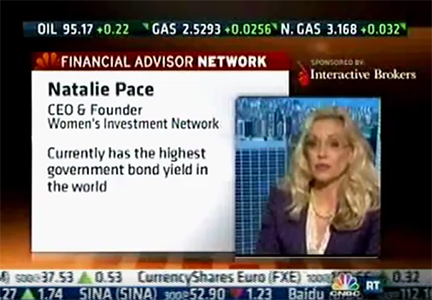
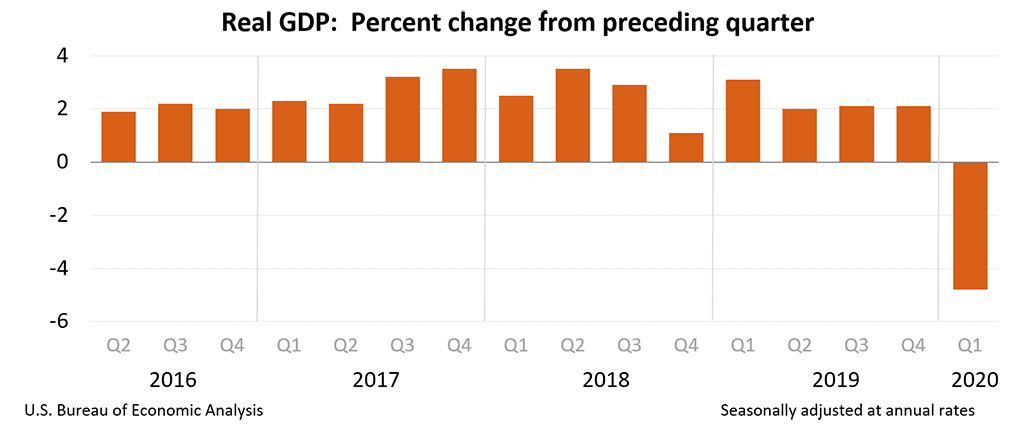
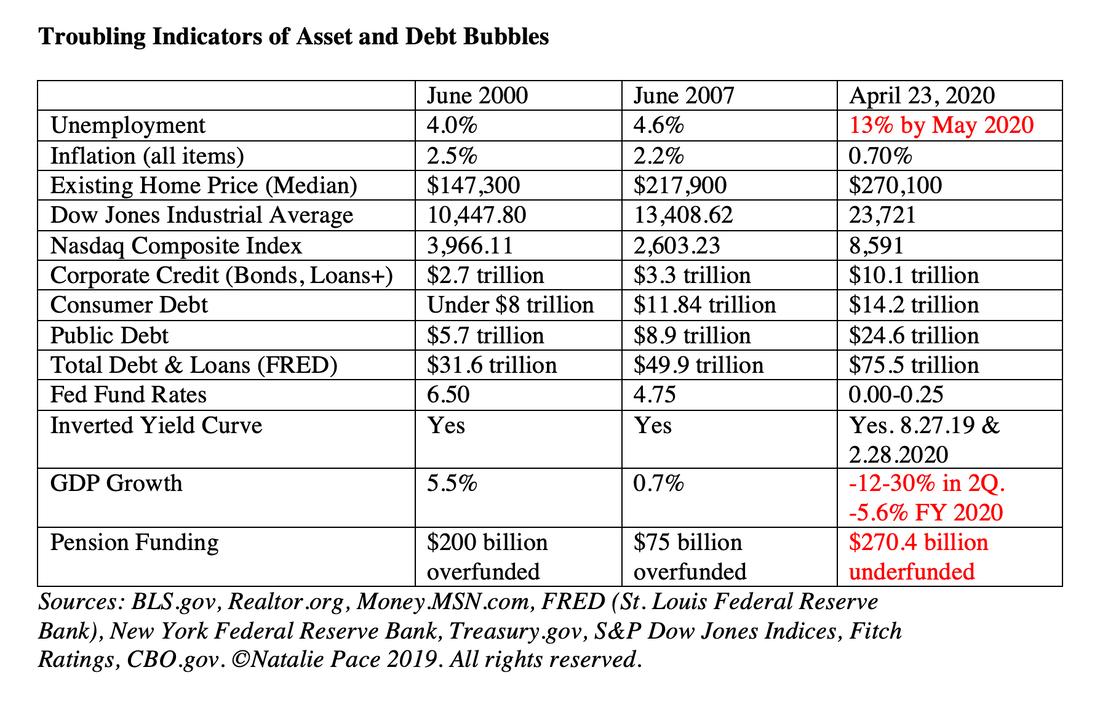
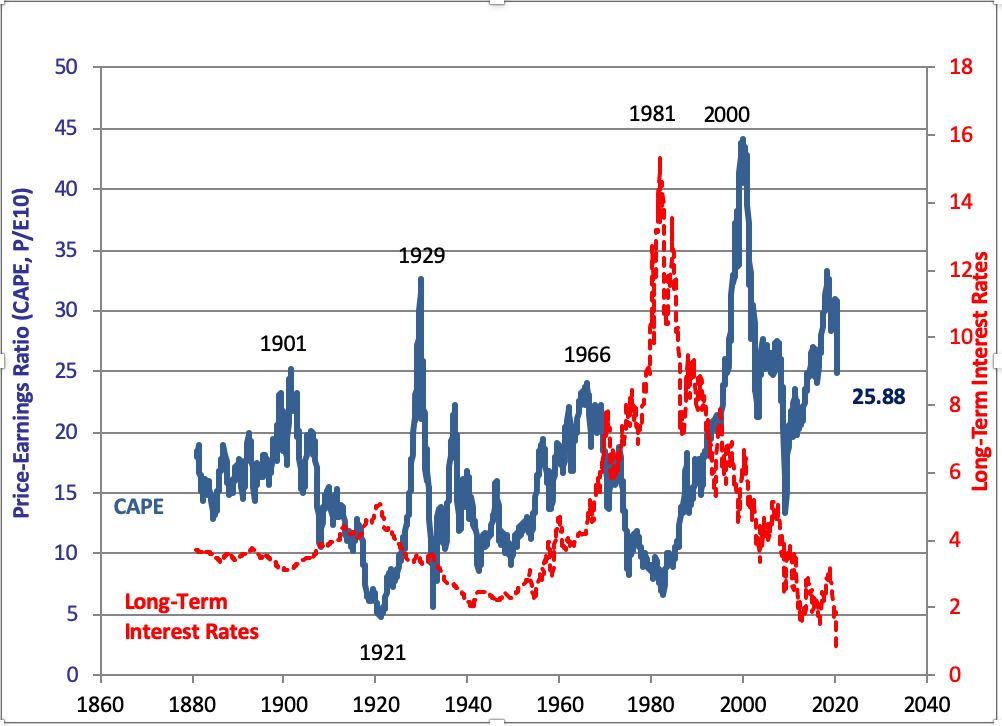
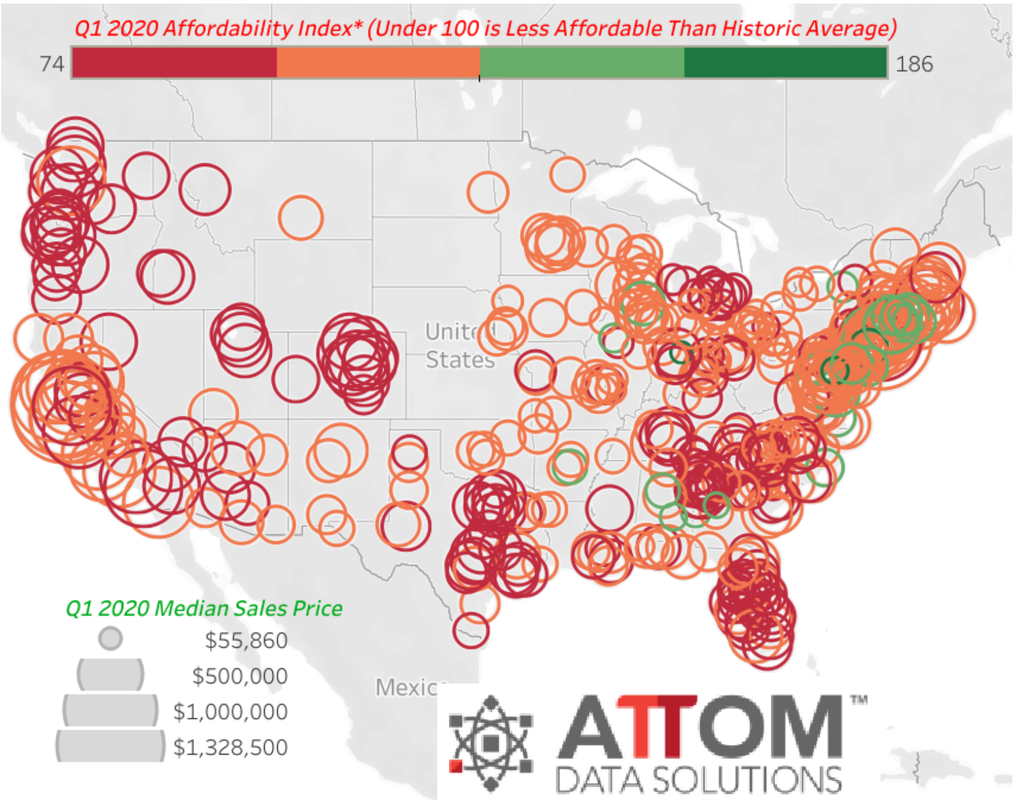
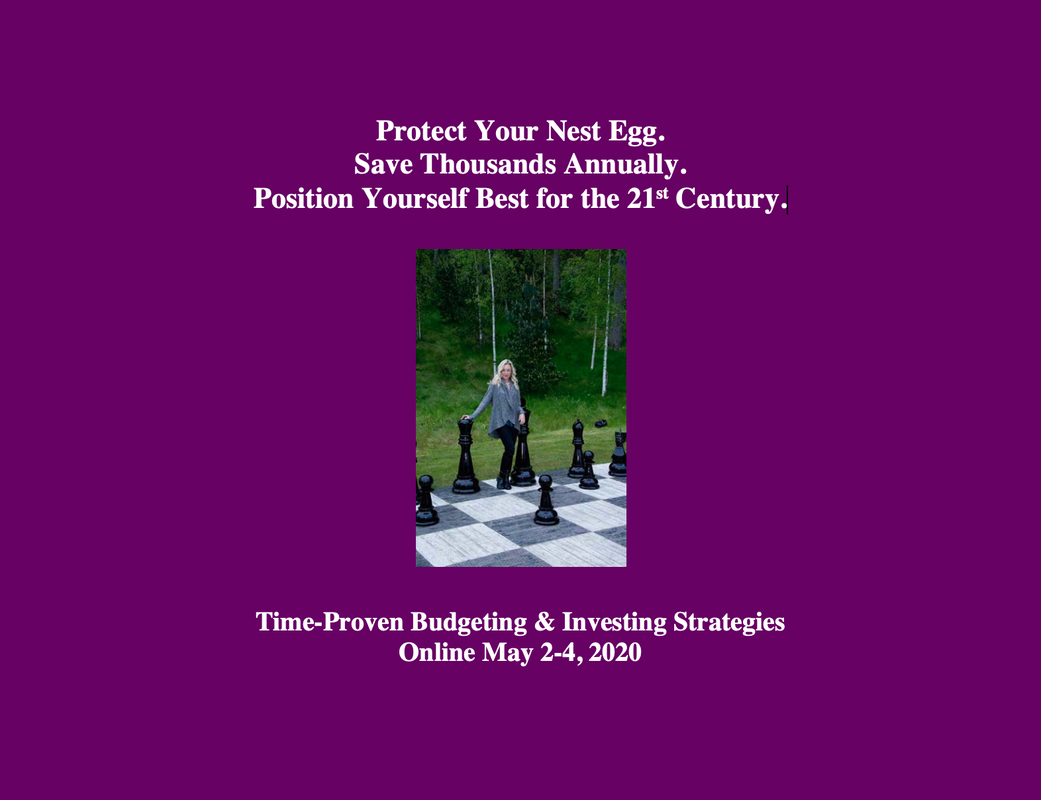



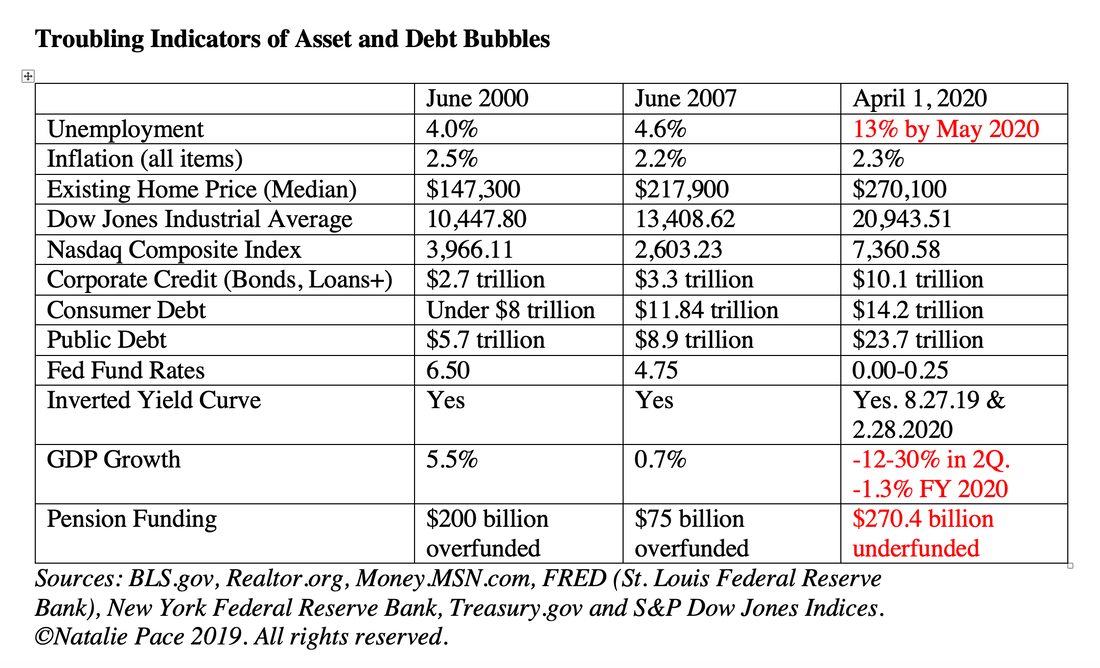
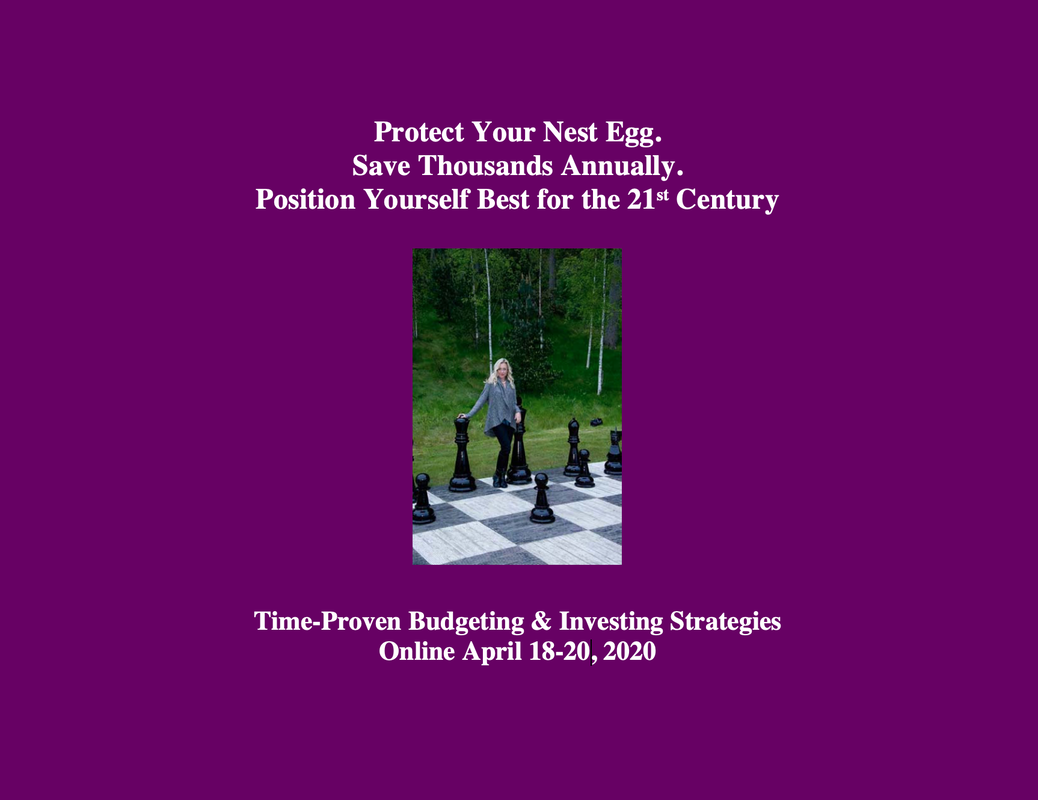
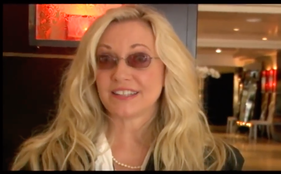
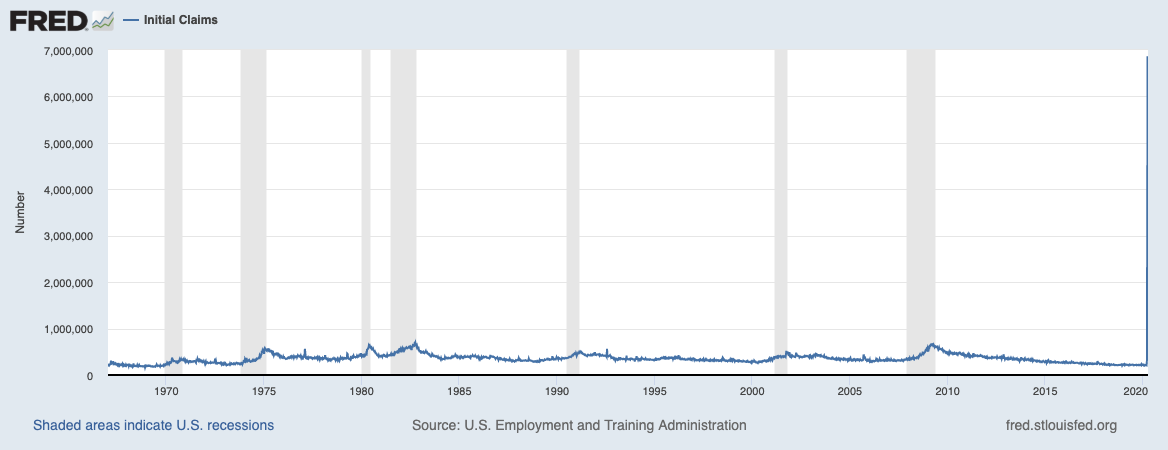
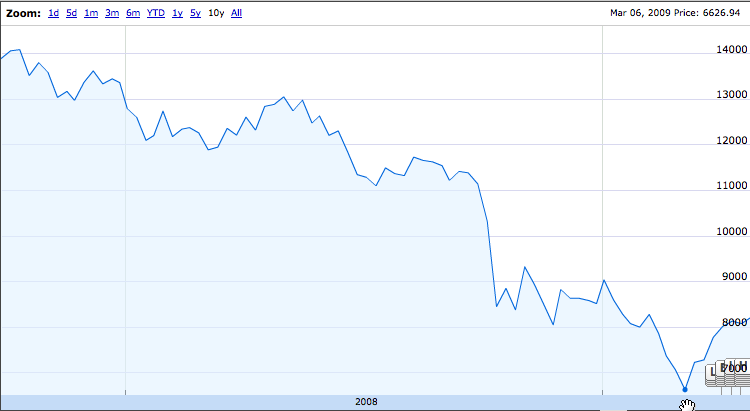
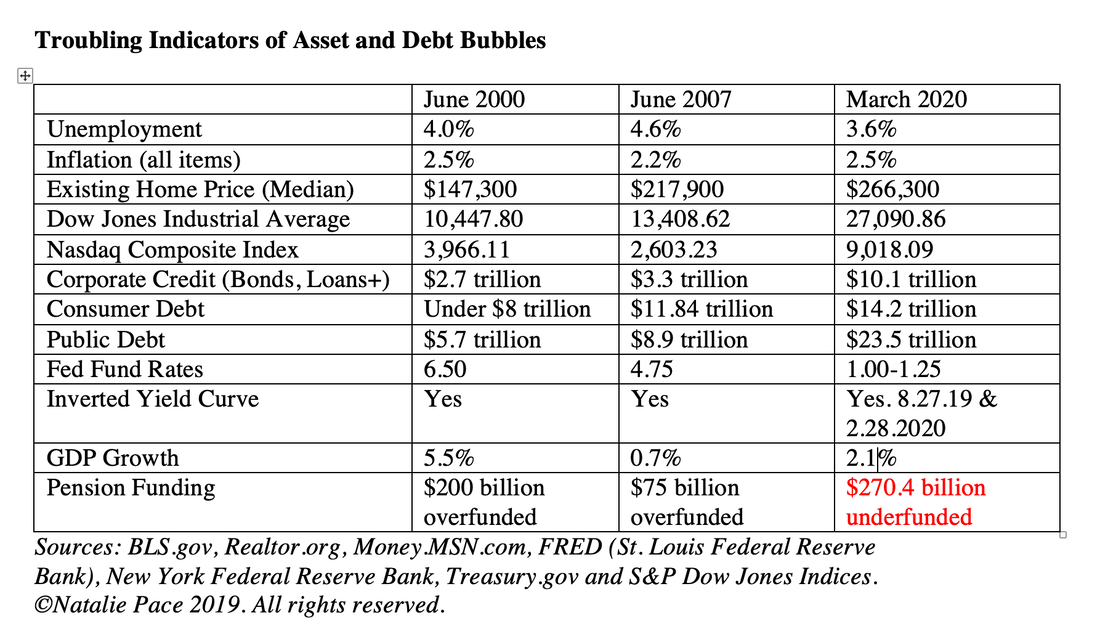

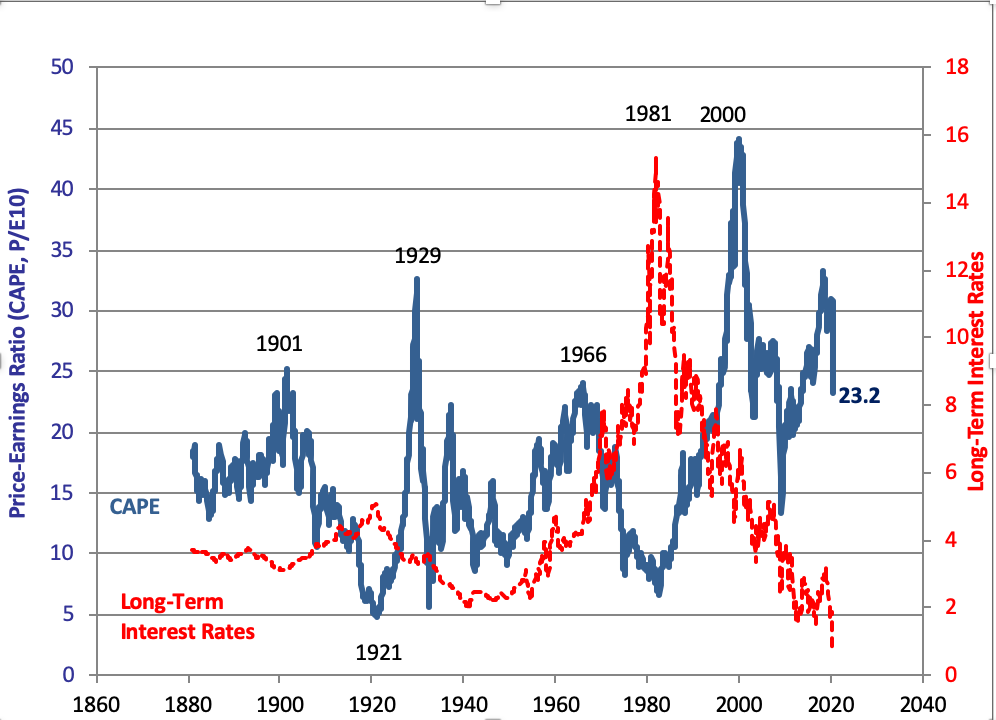
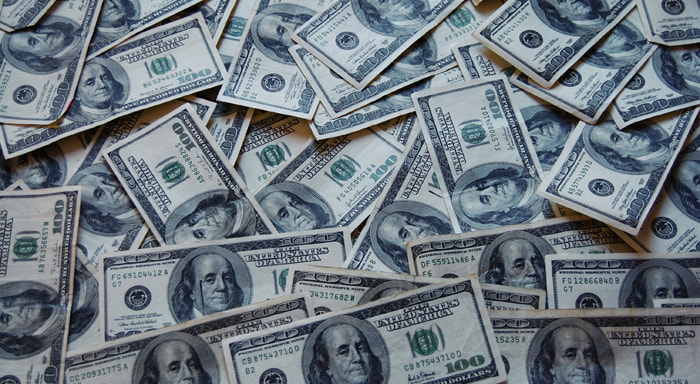



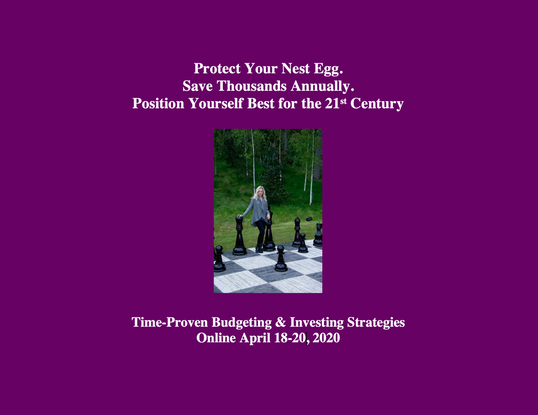
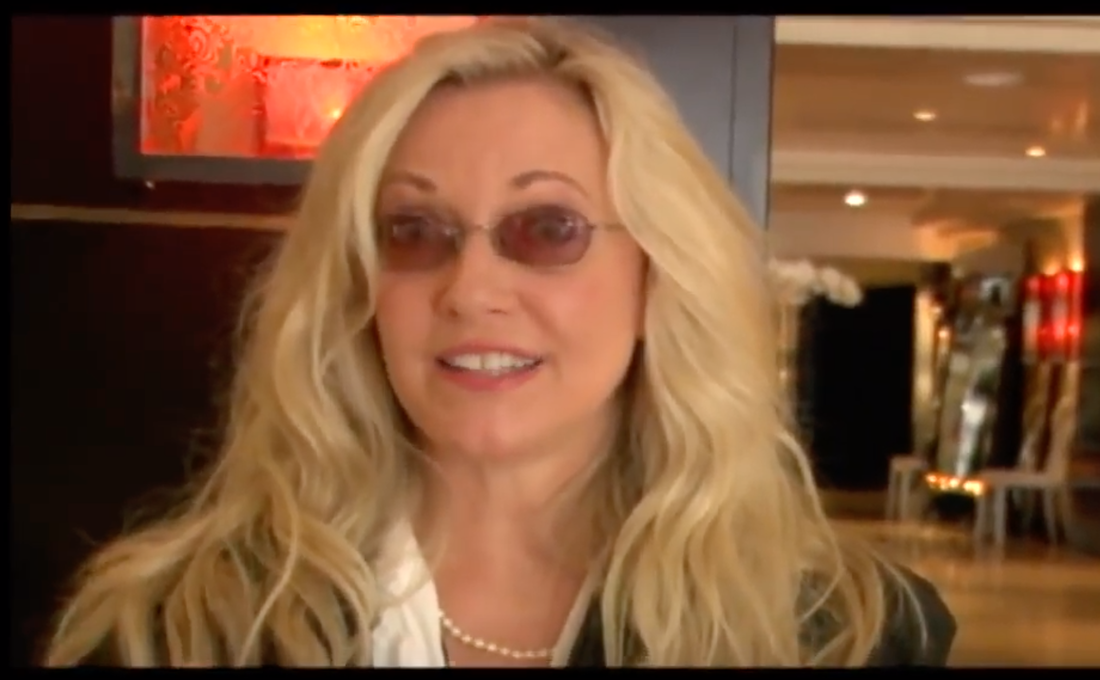

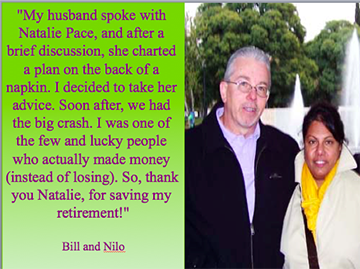
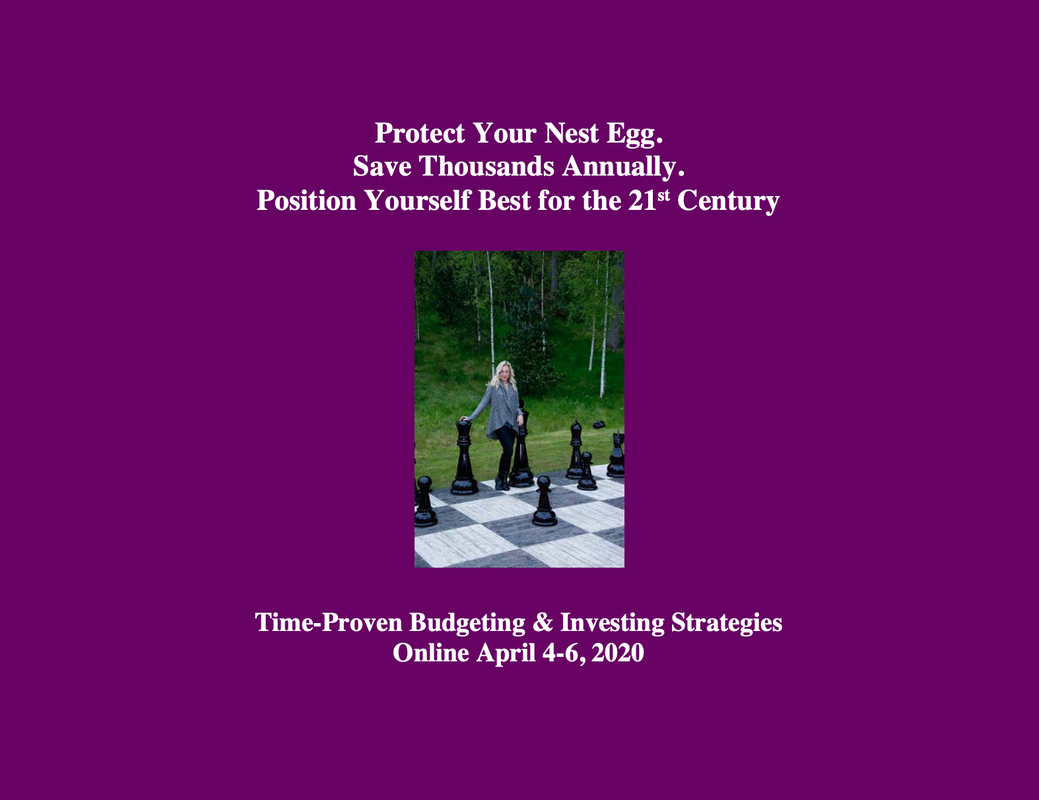
 RSS Feed
RSS Feed